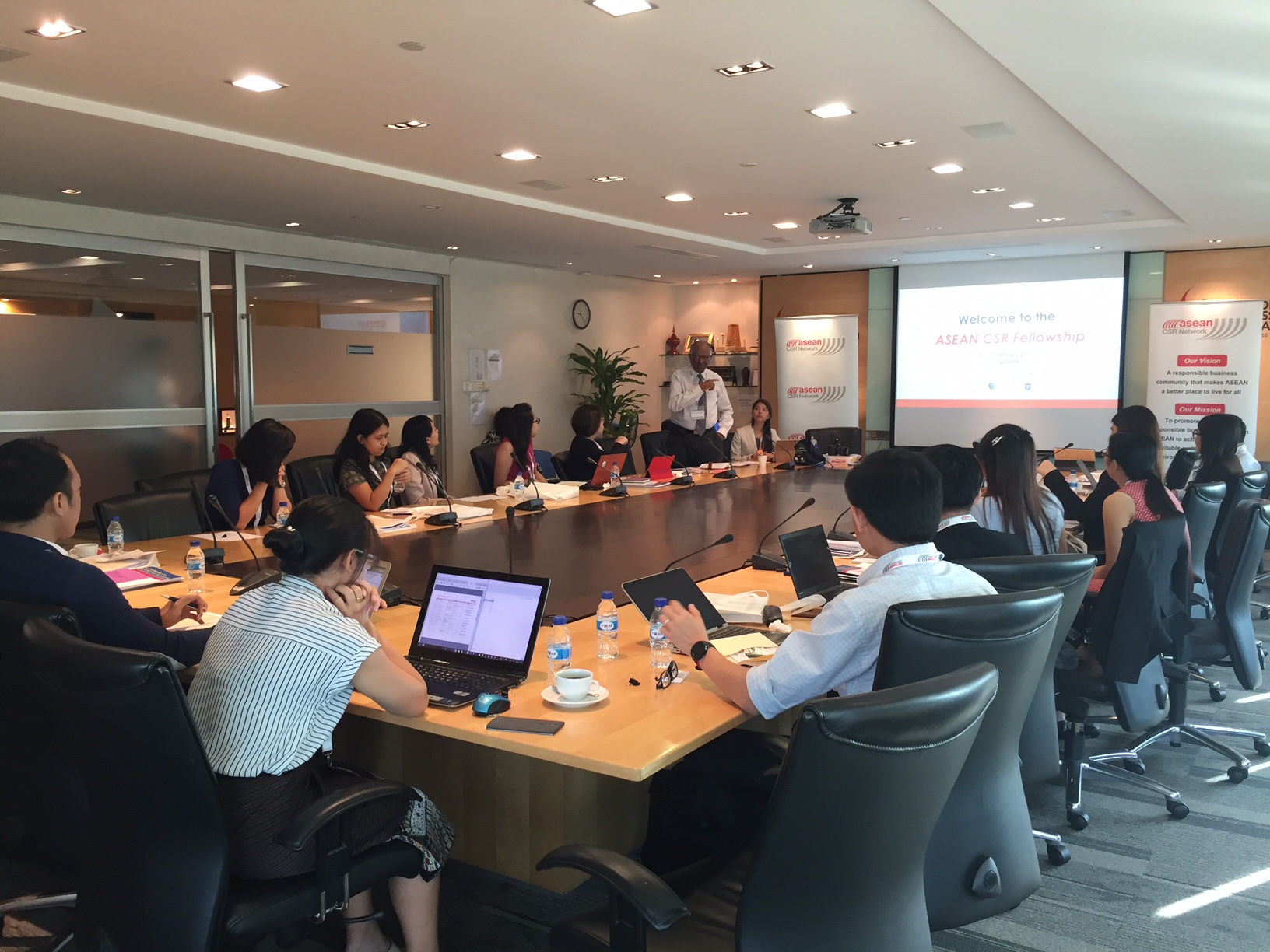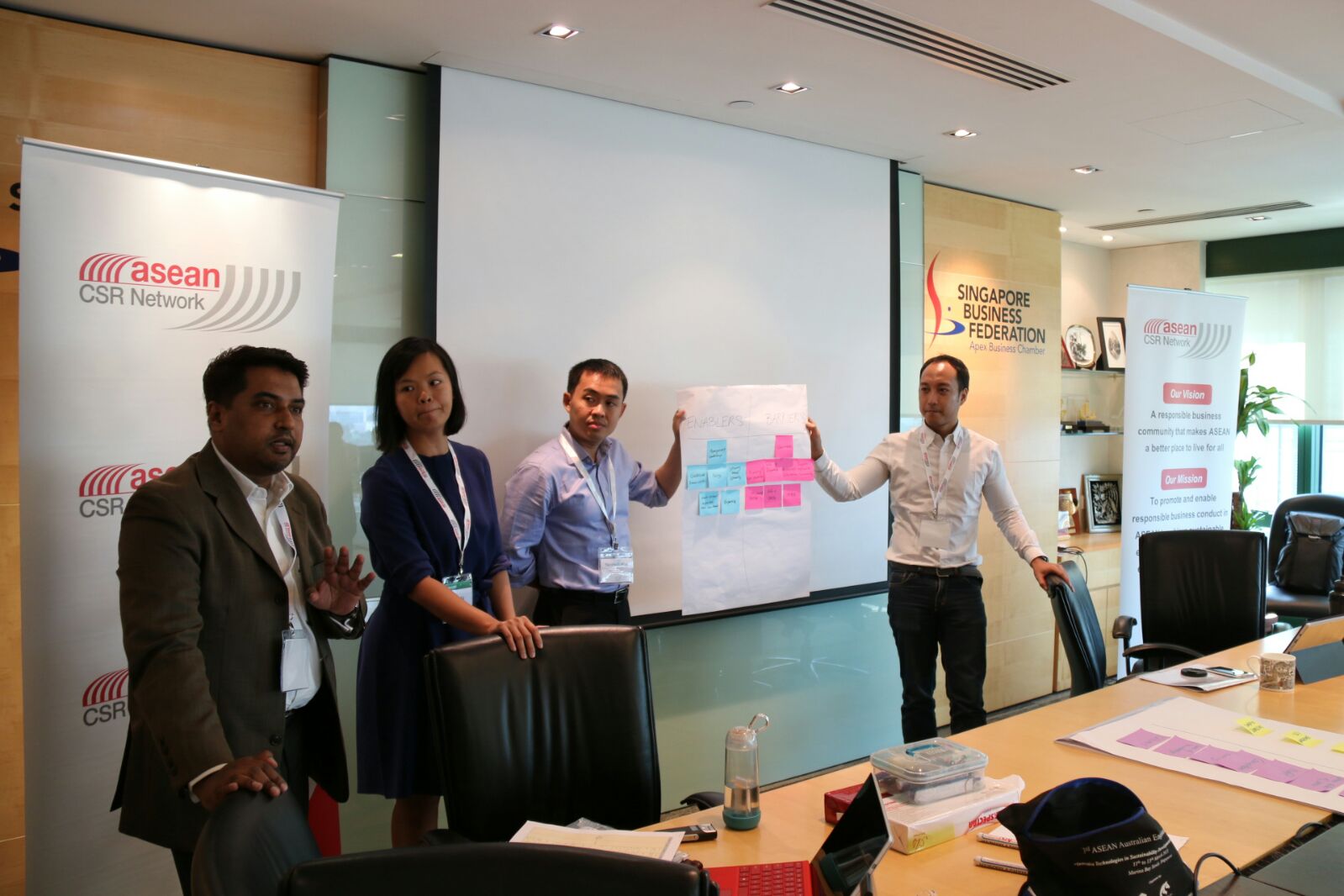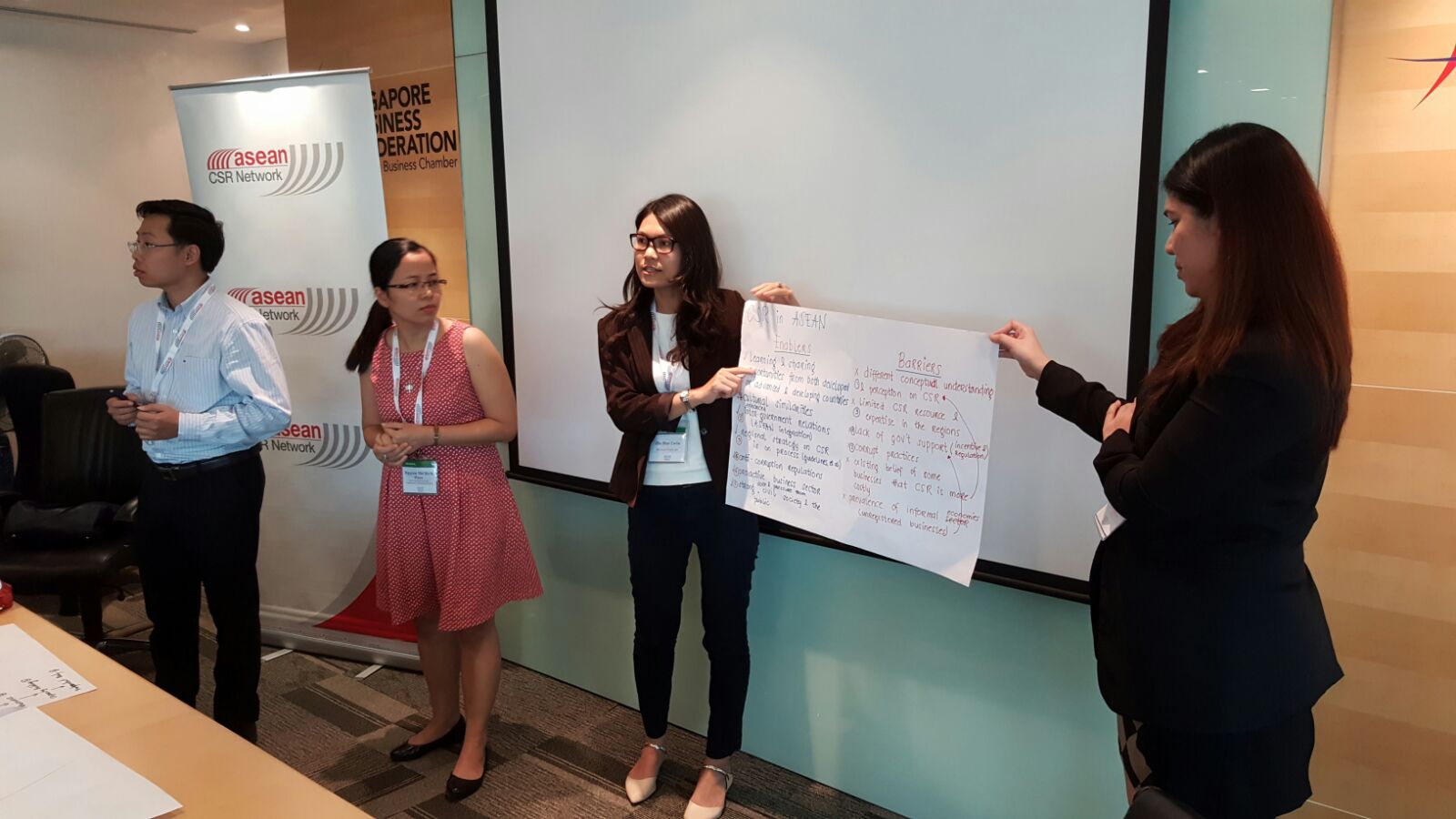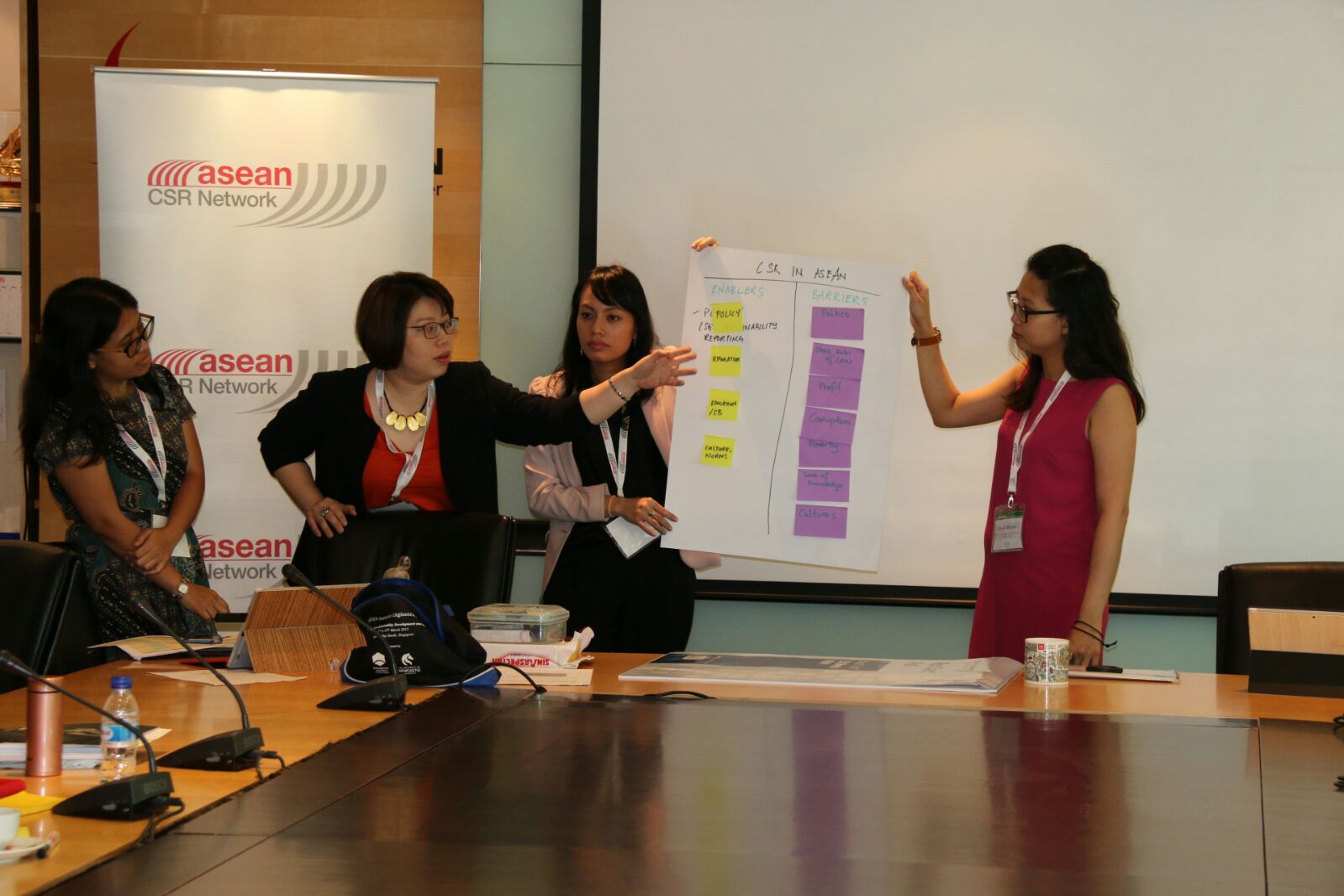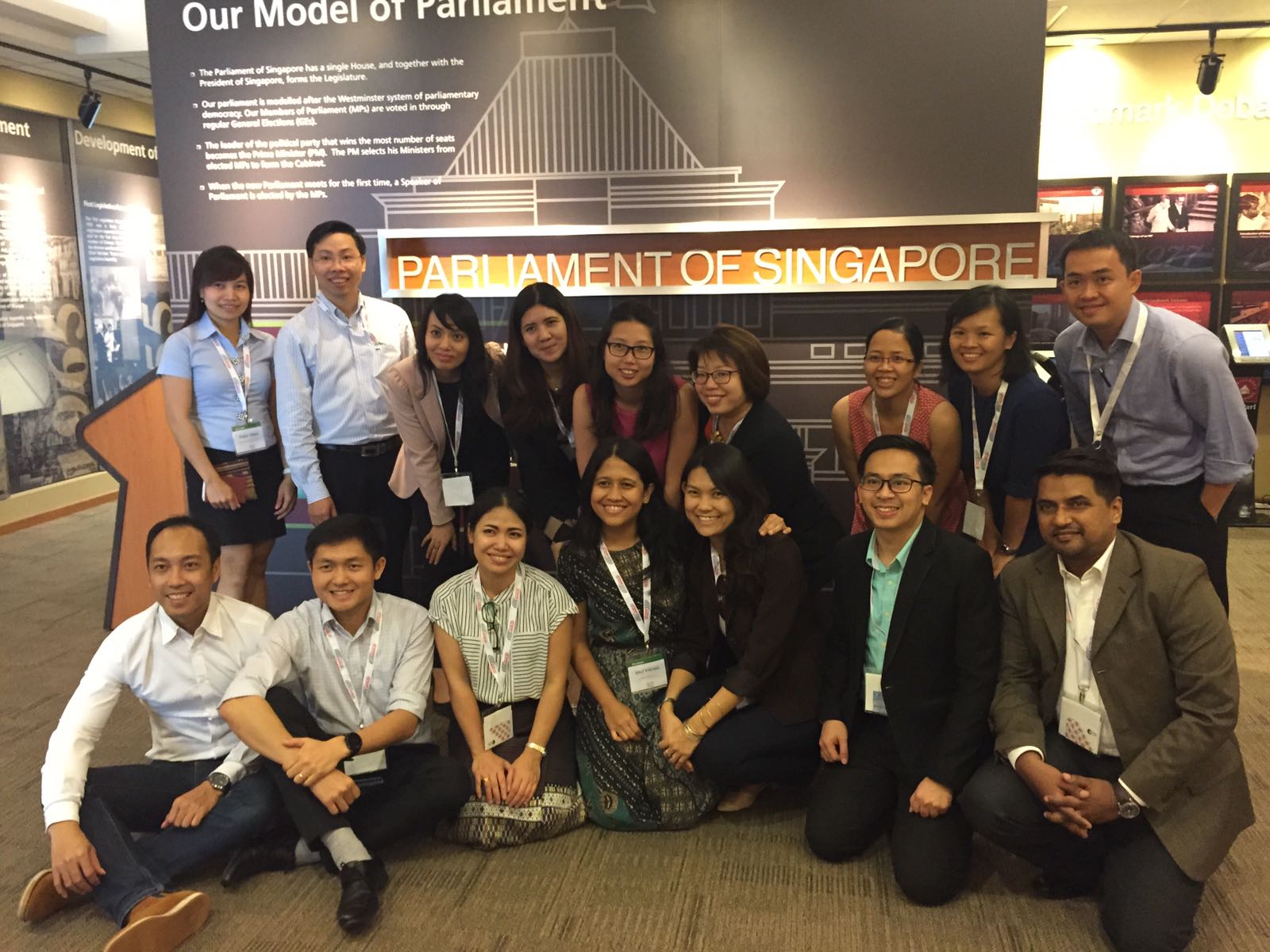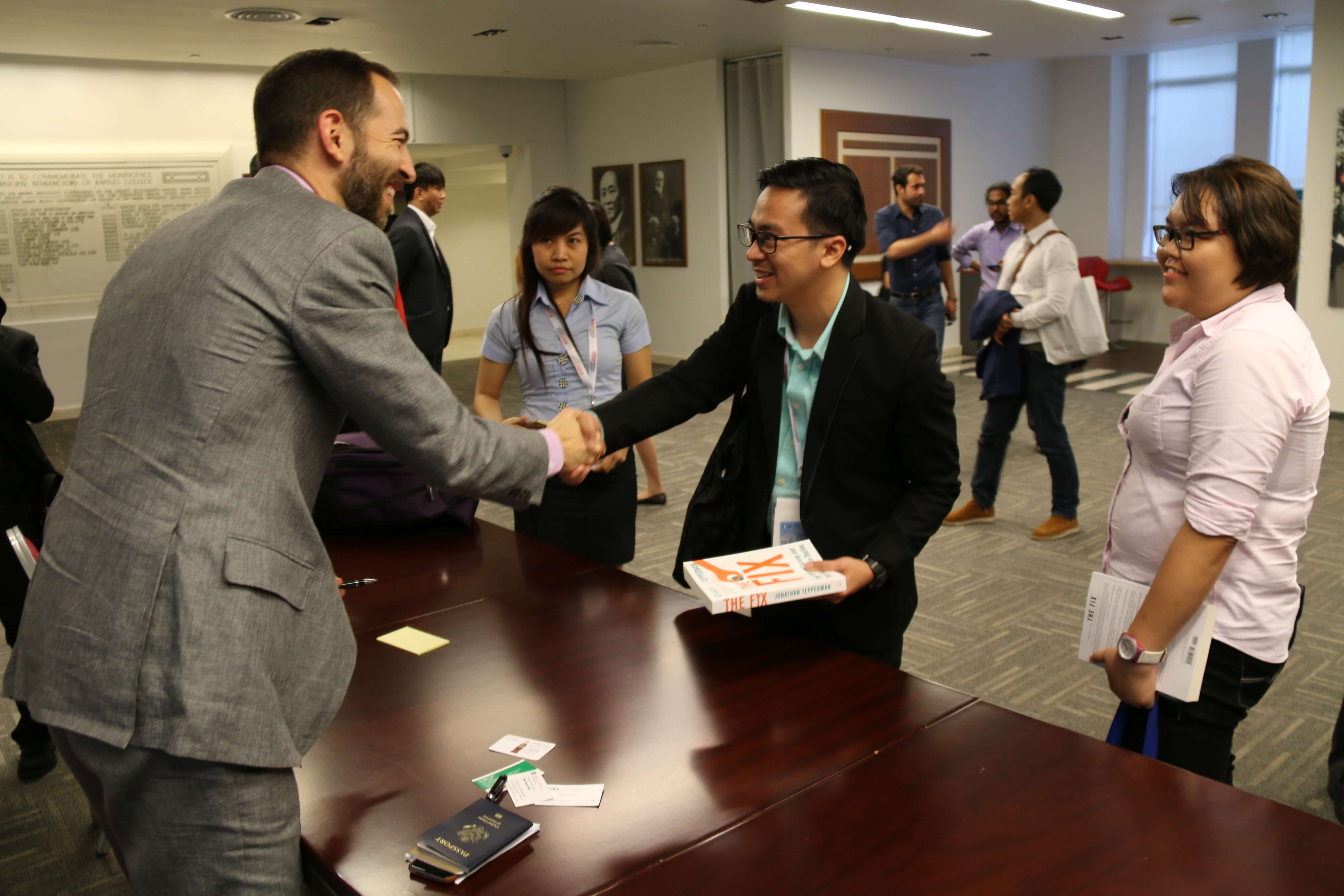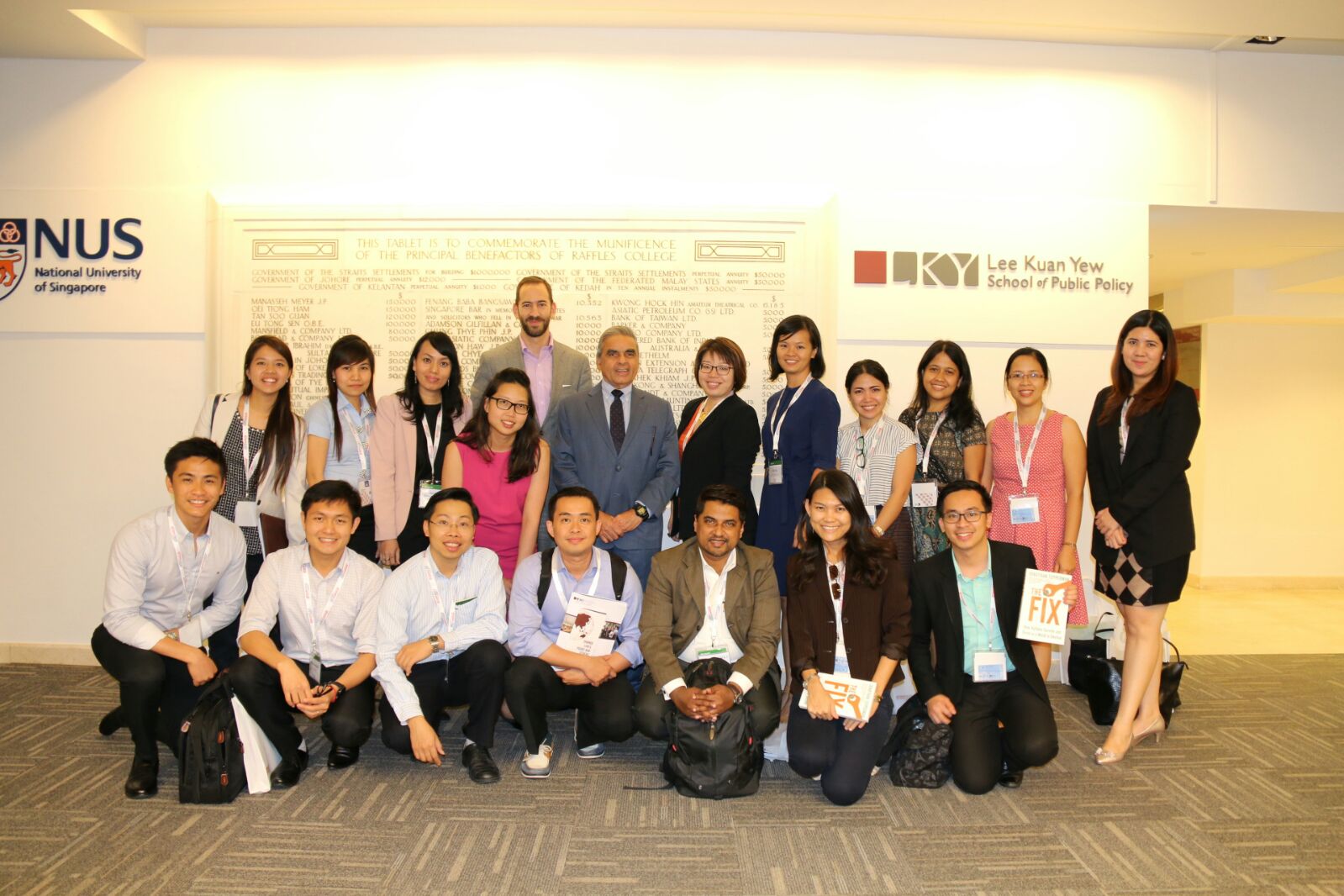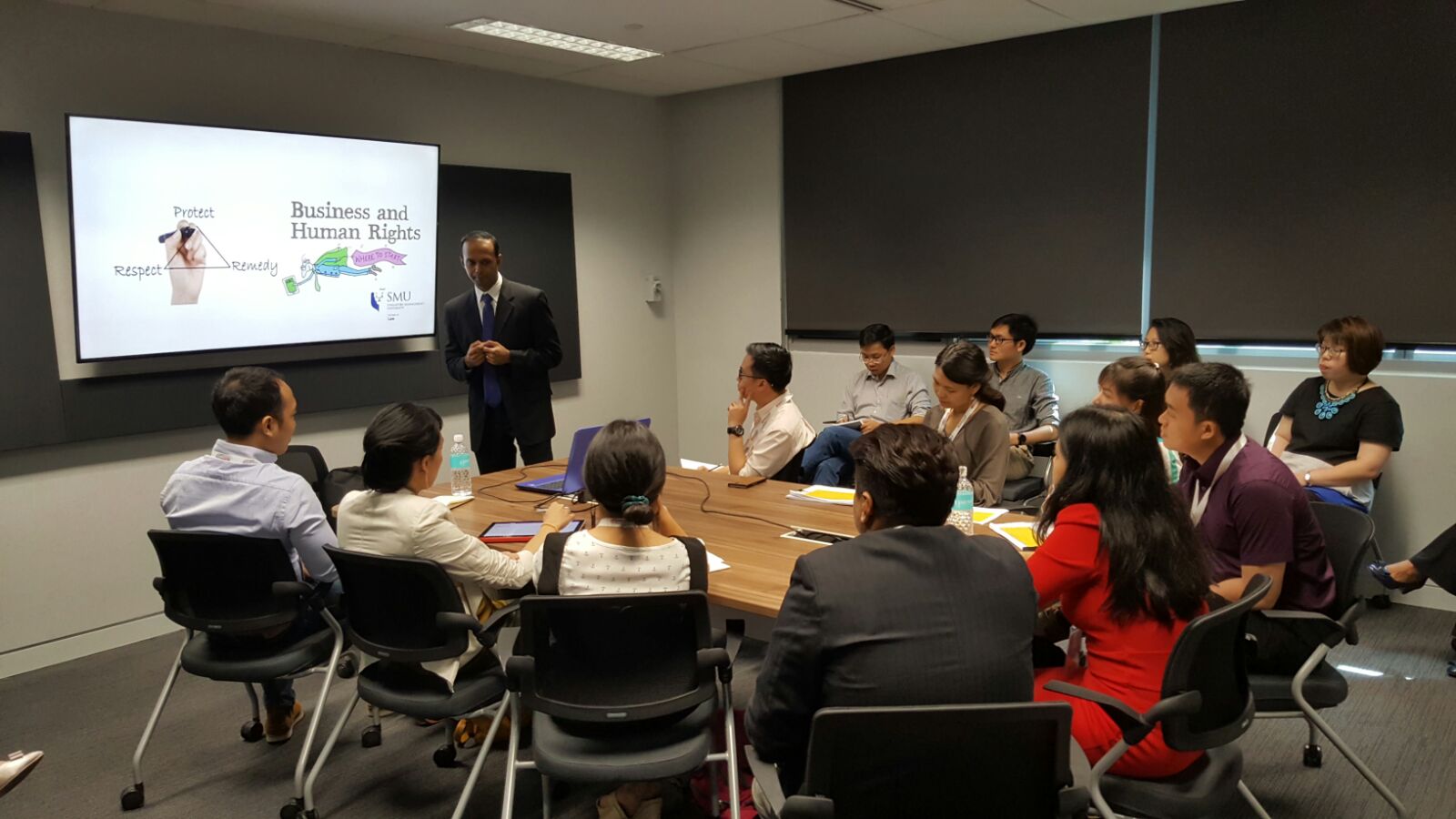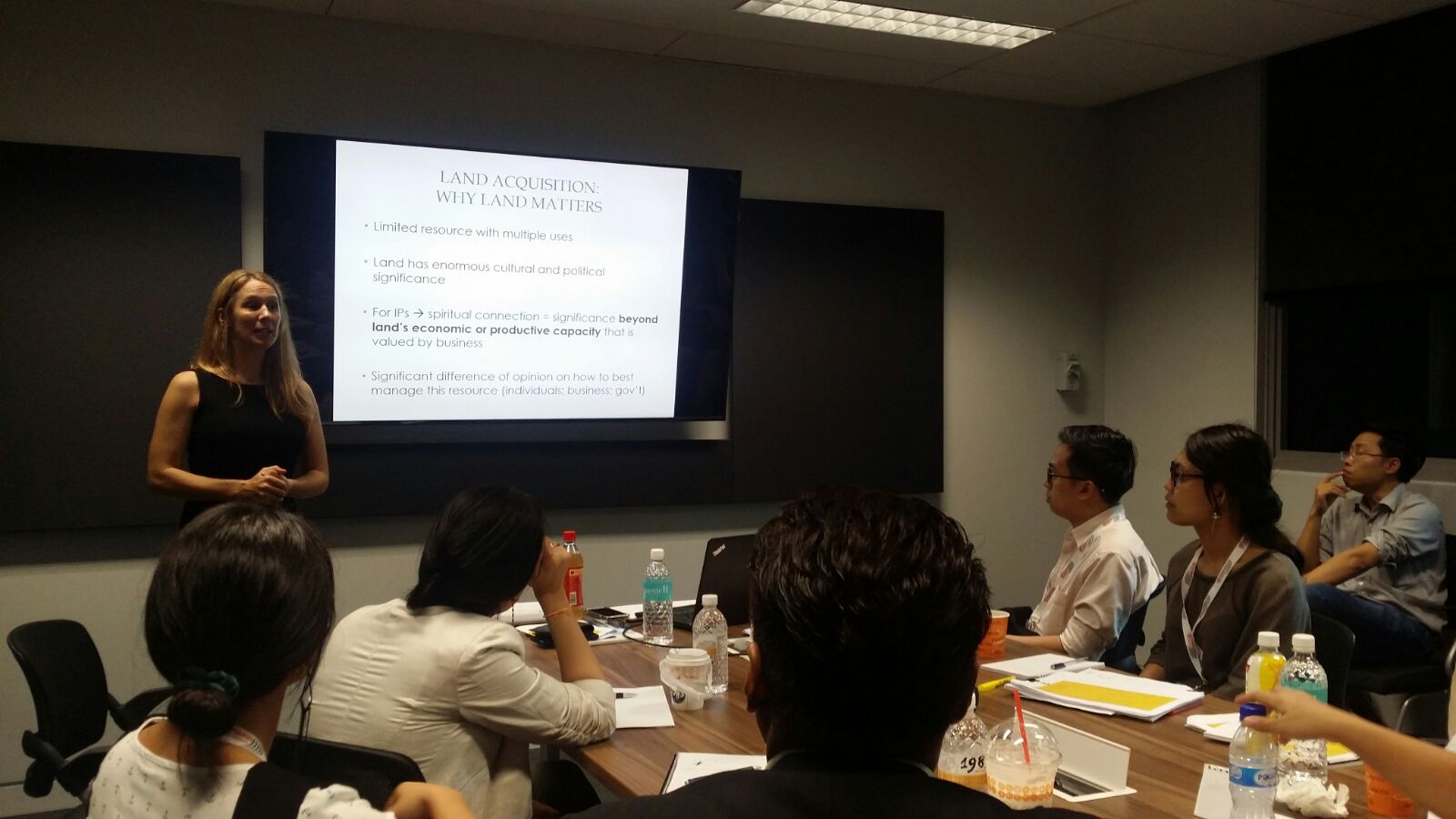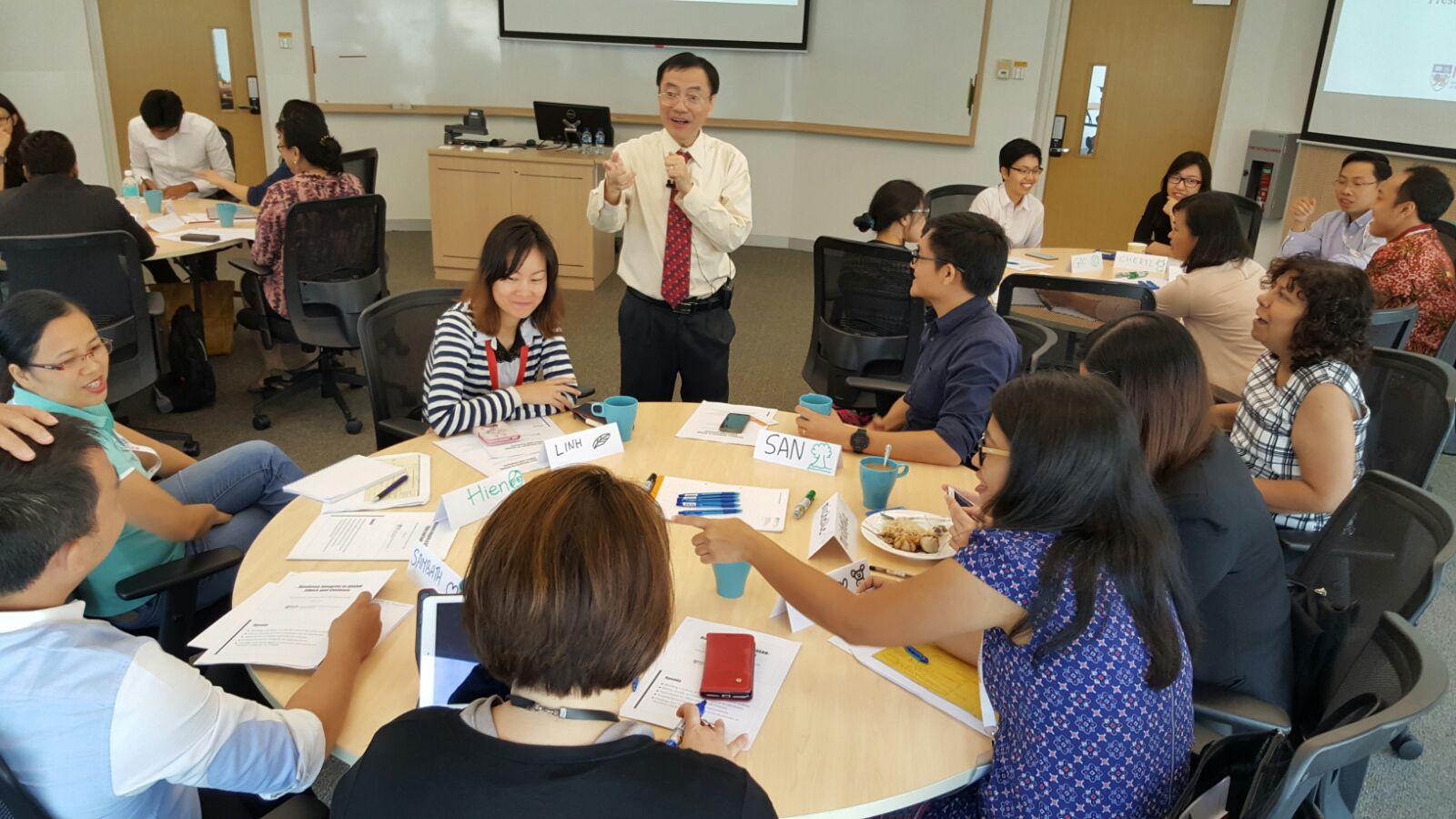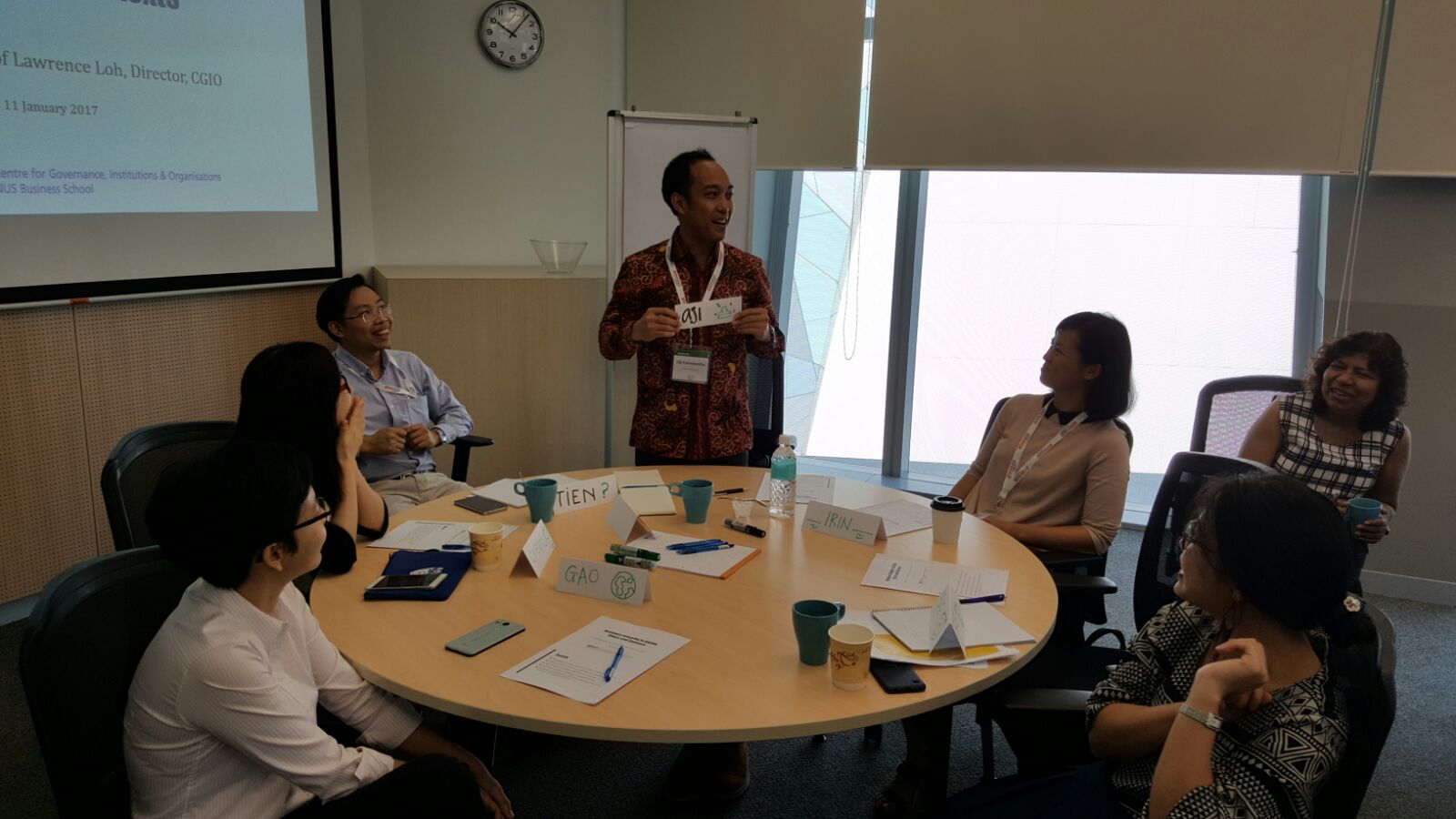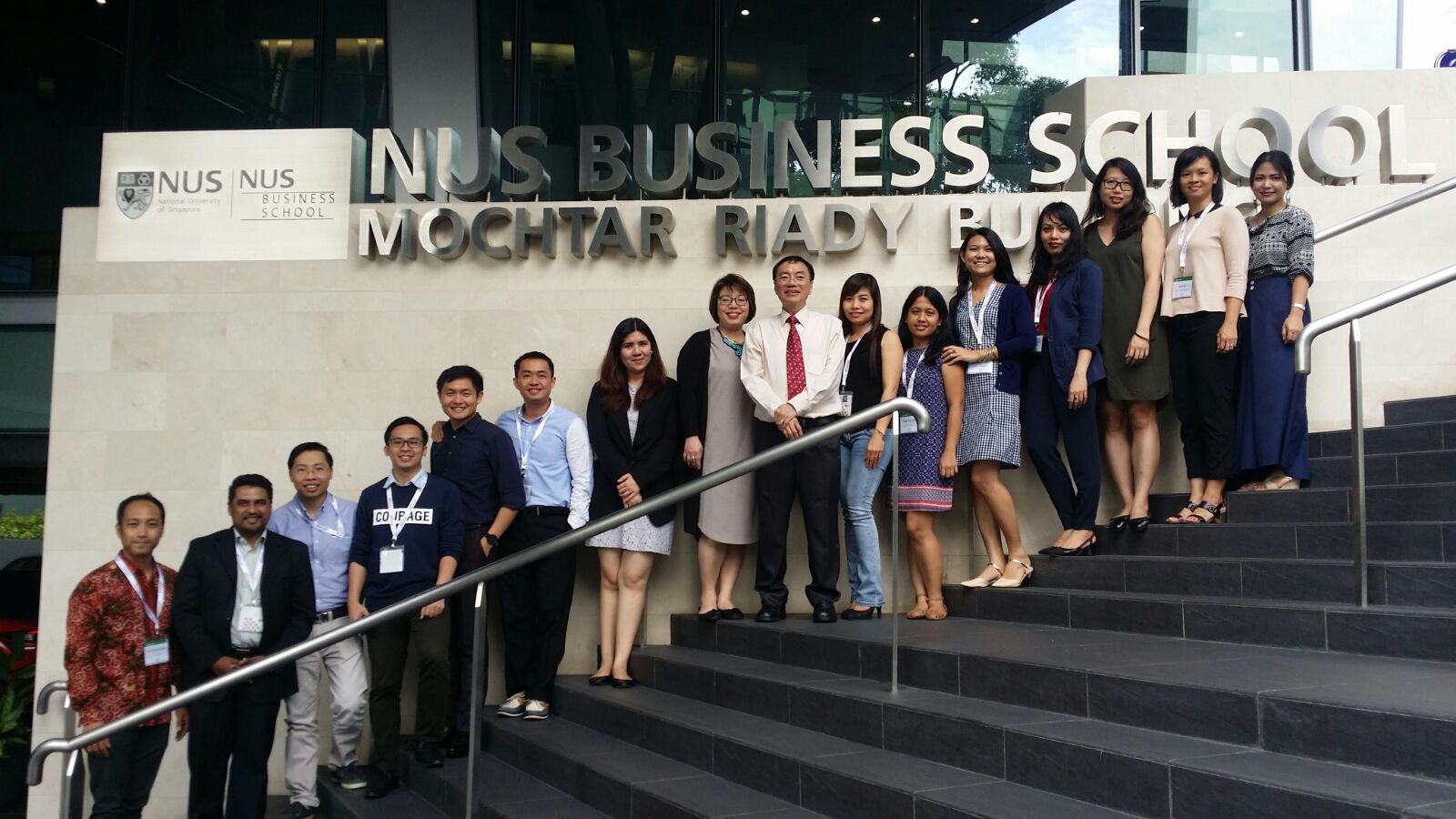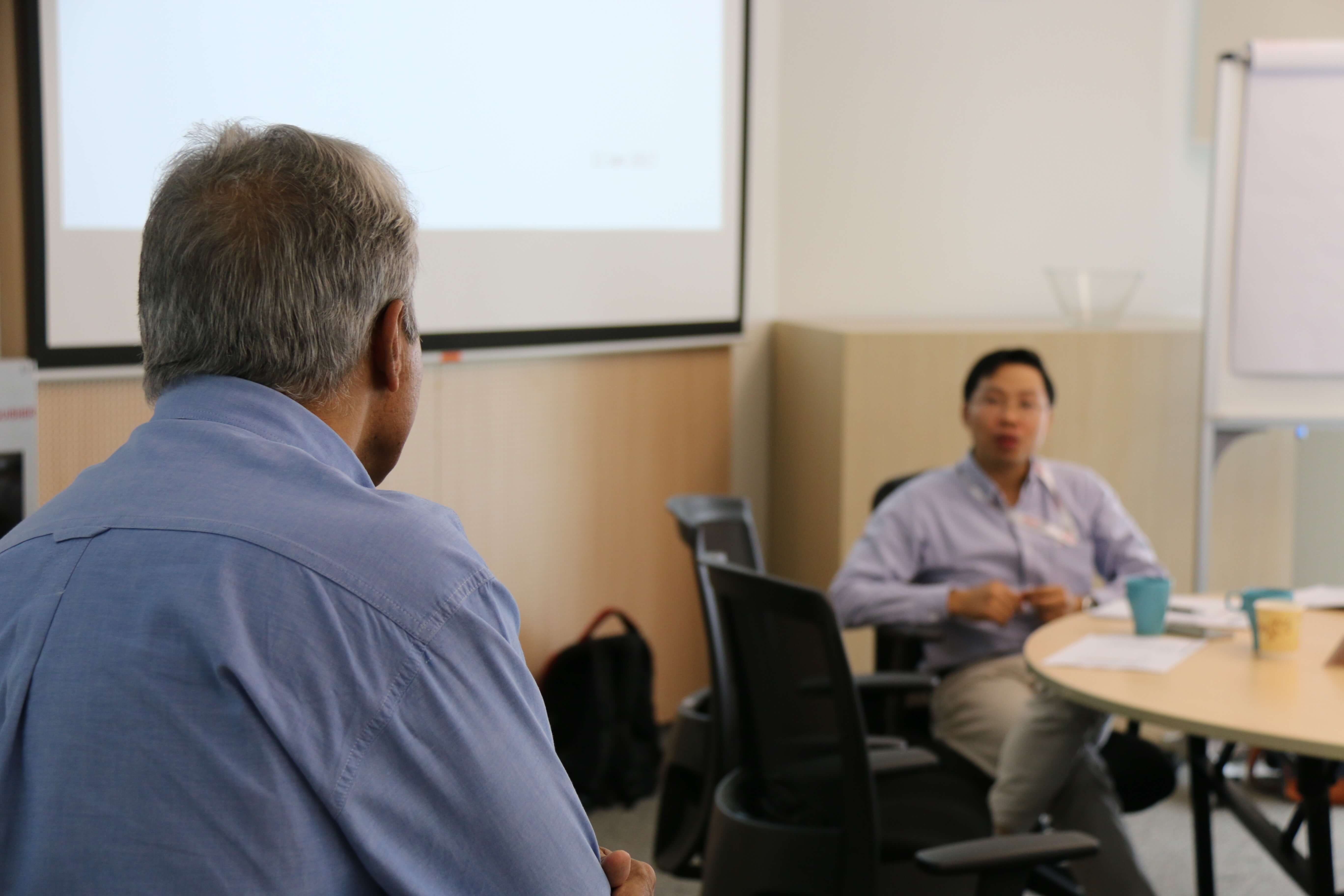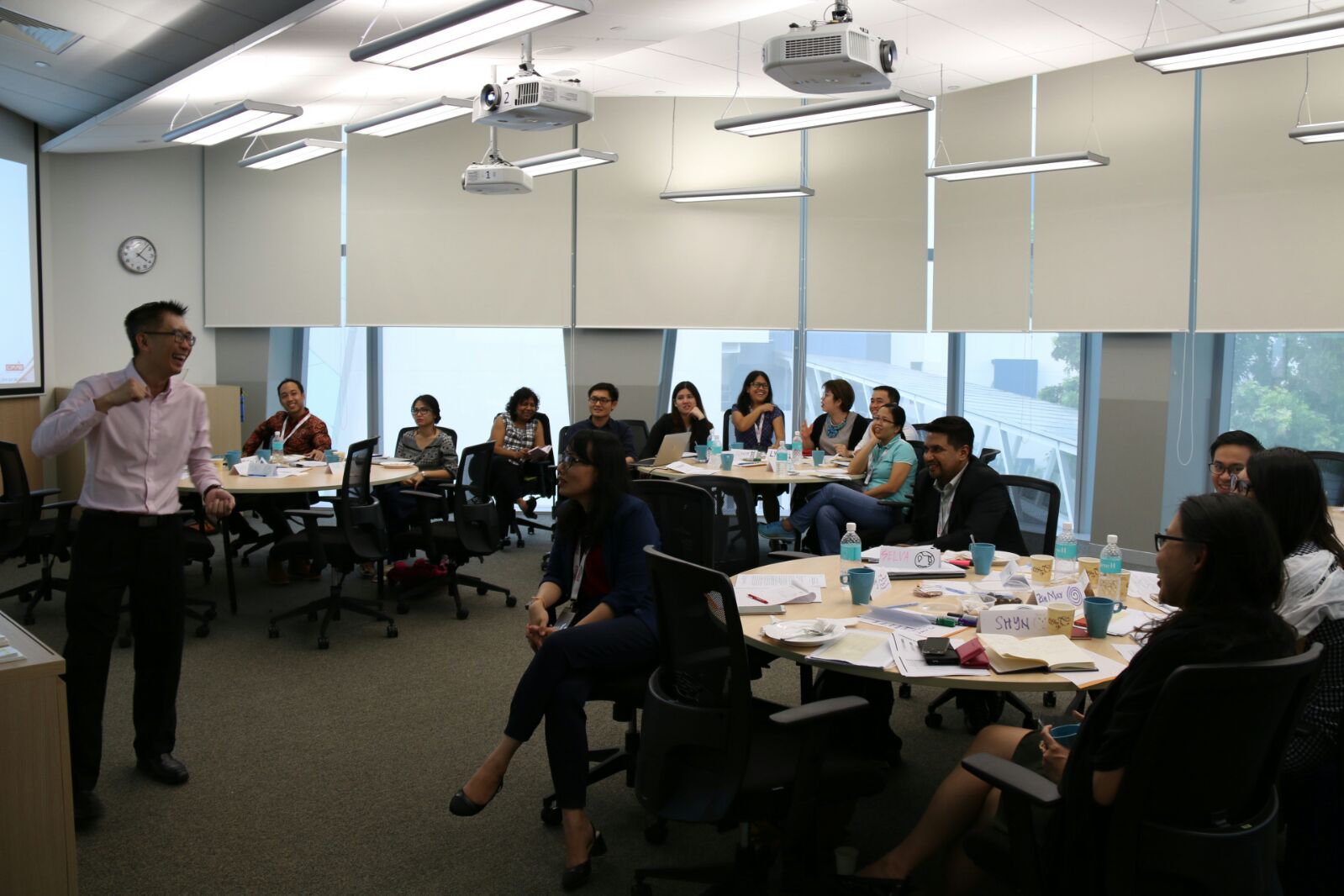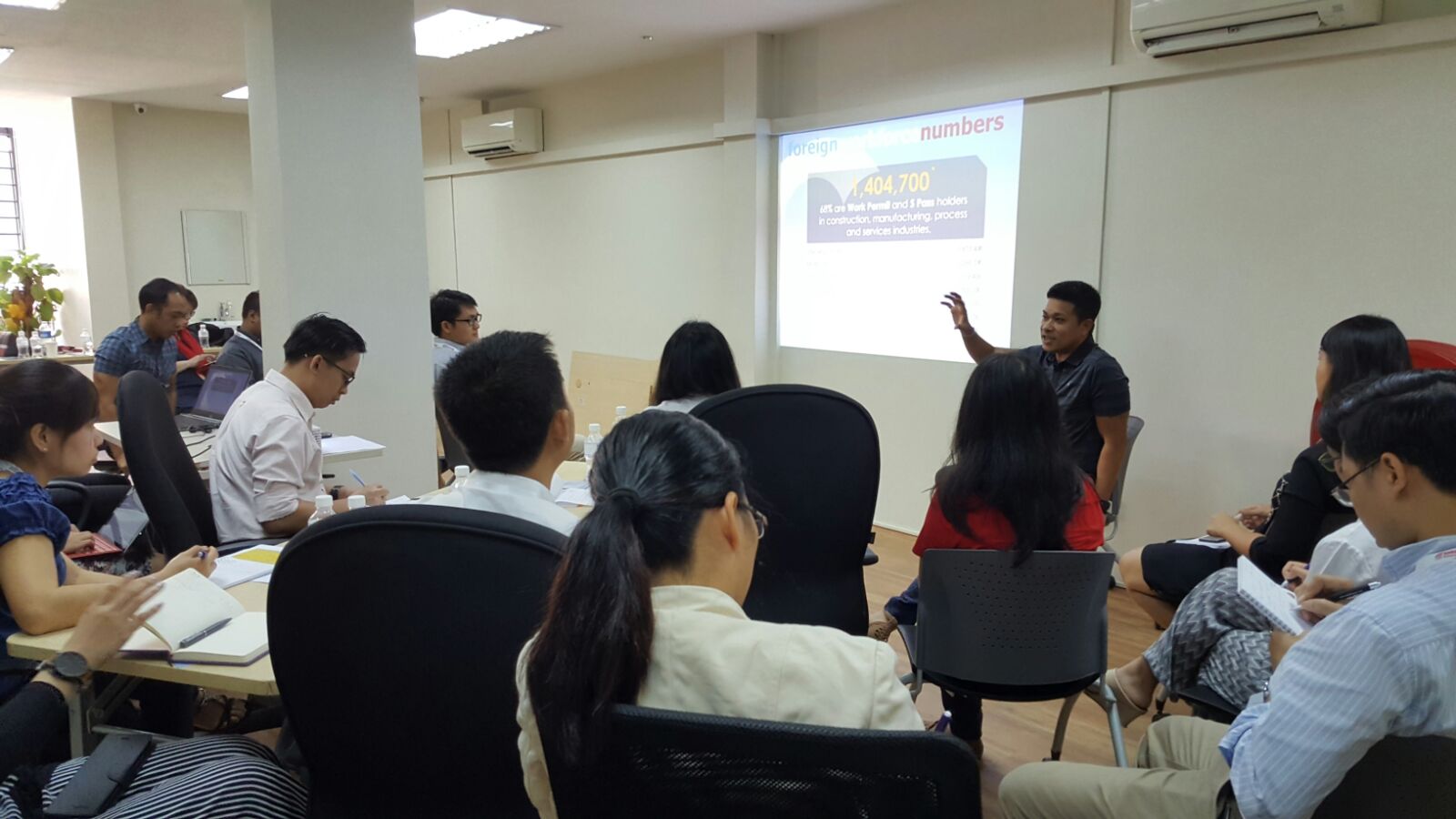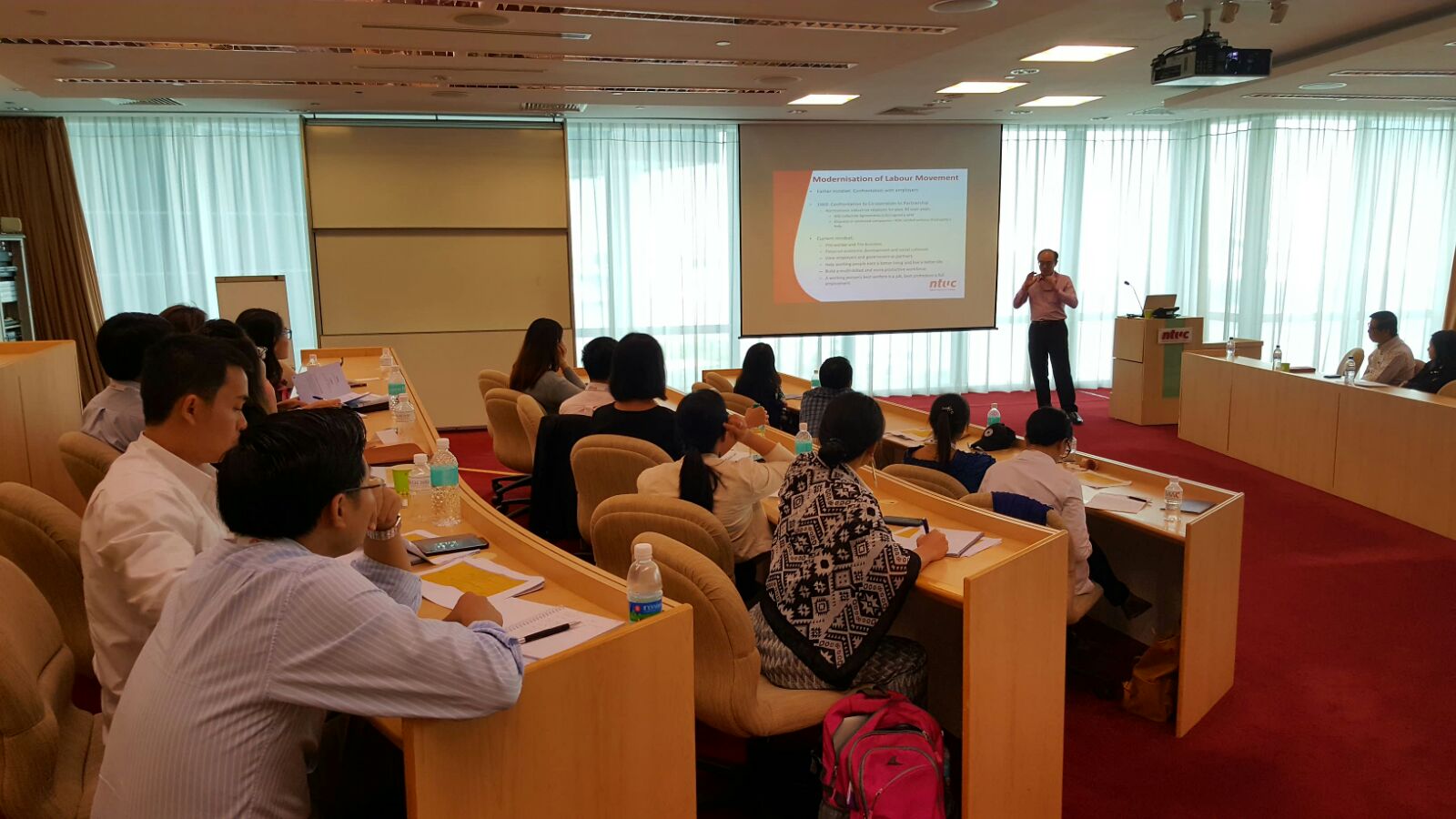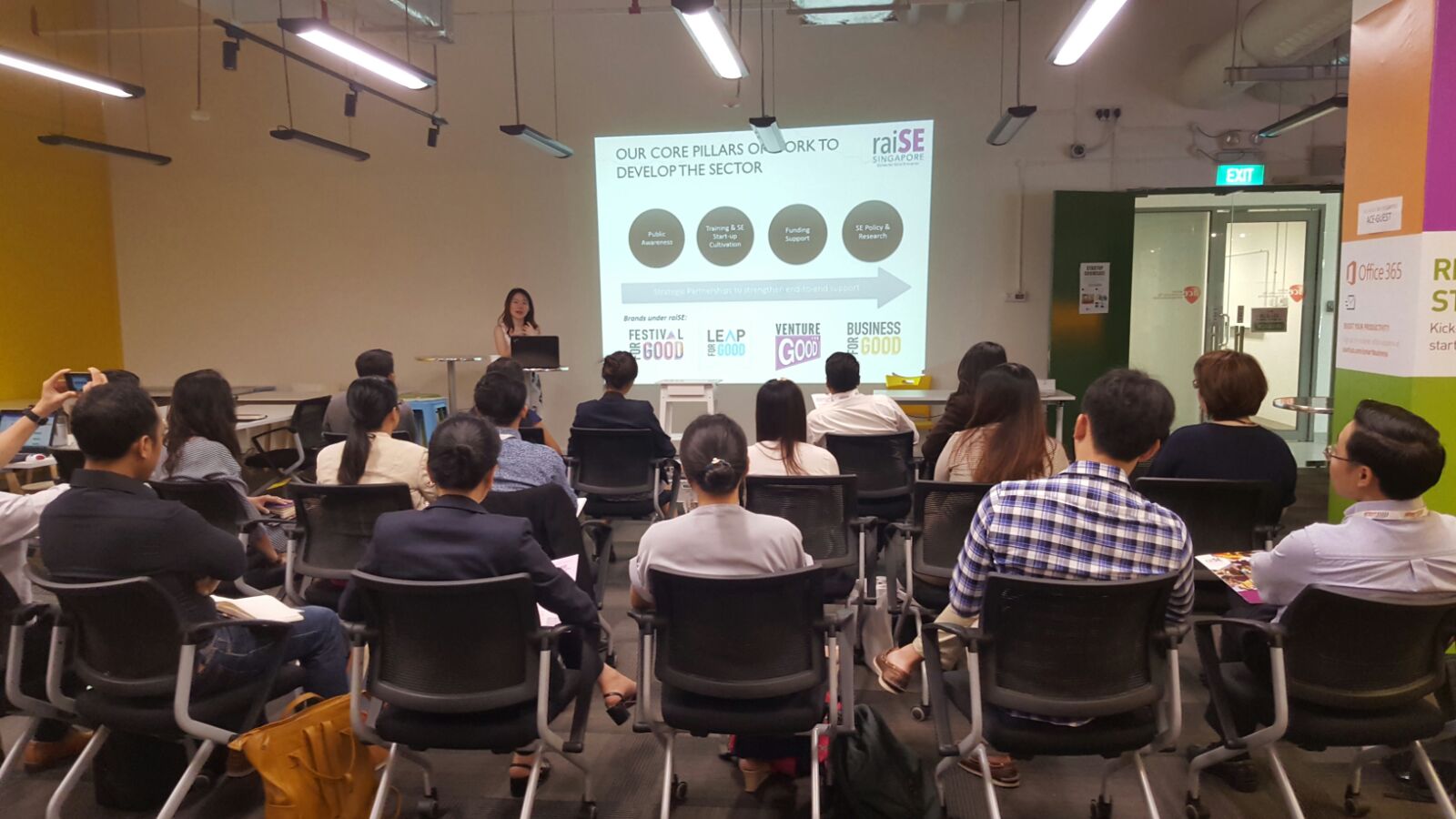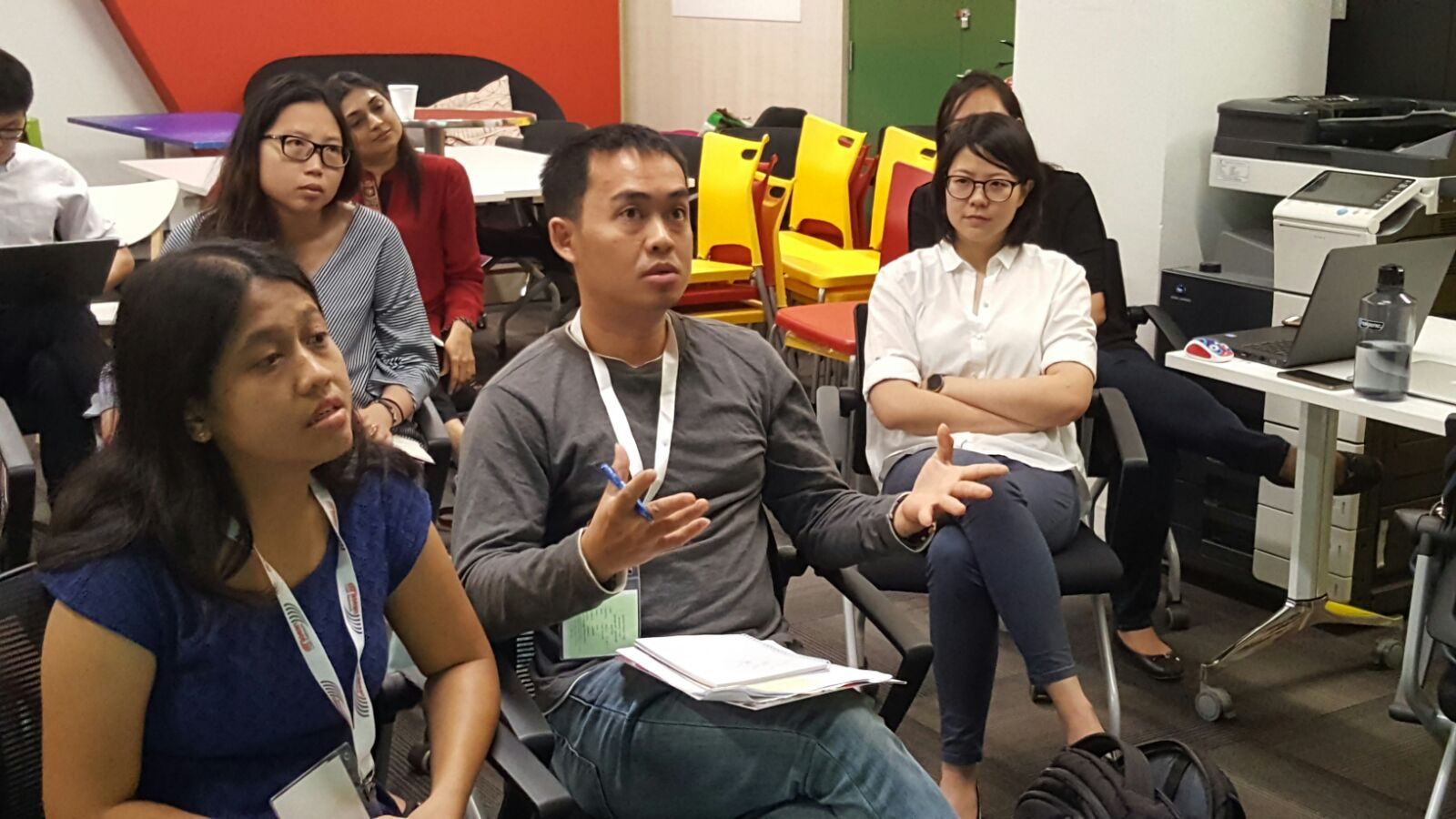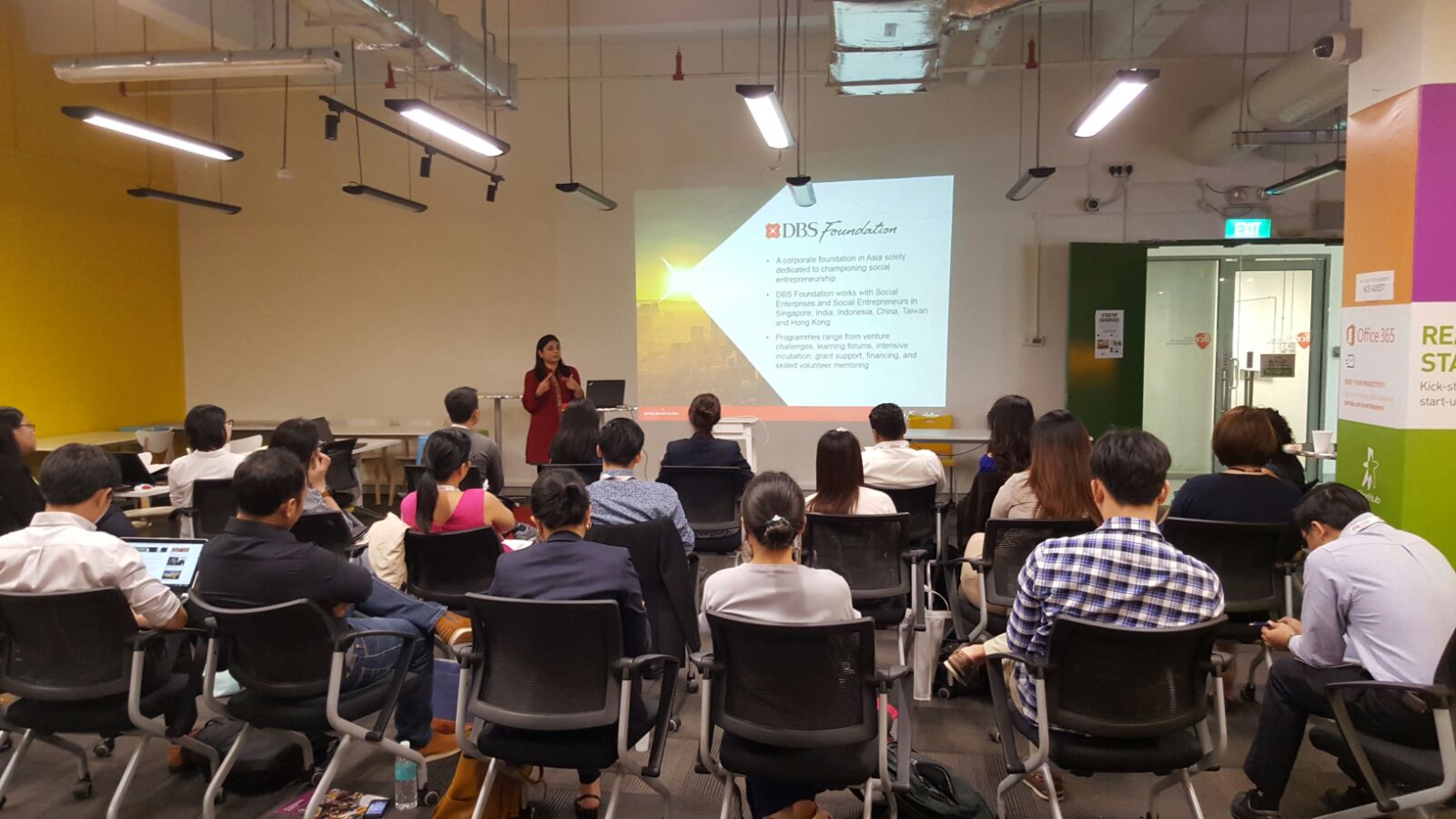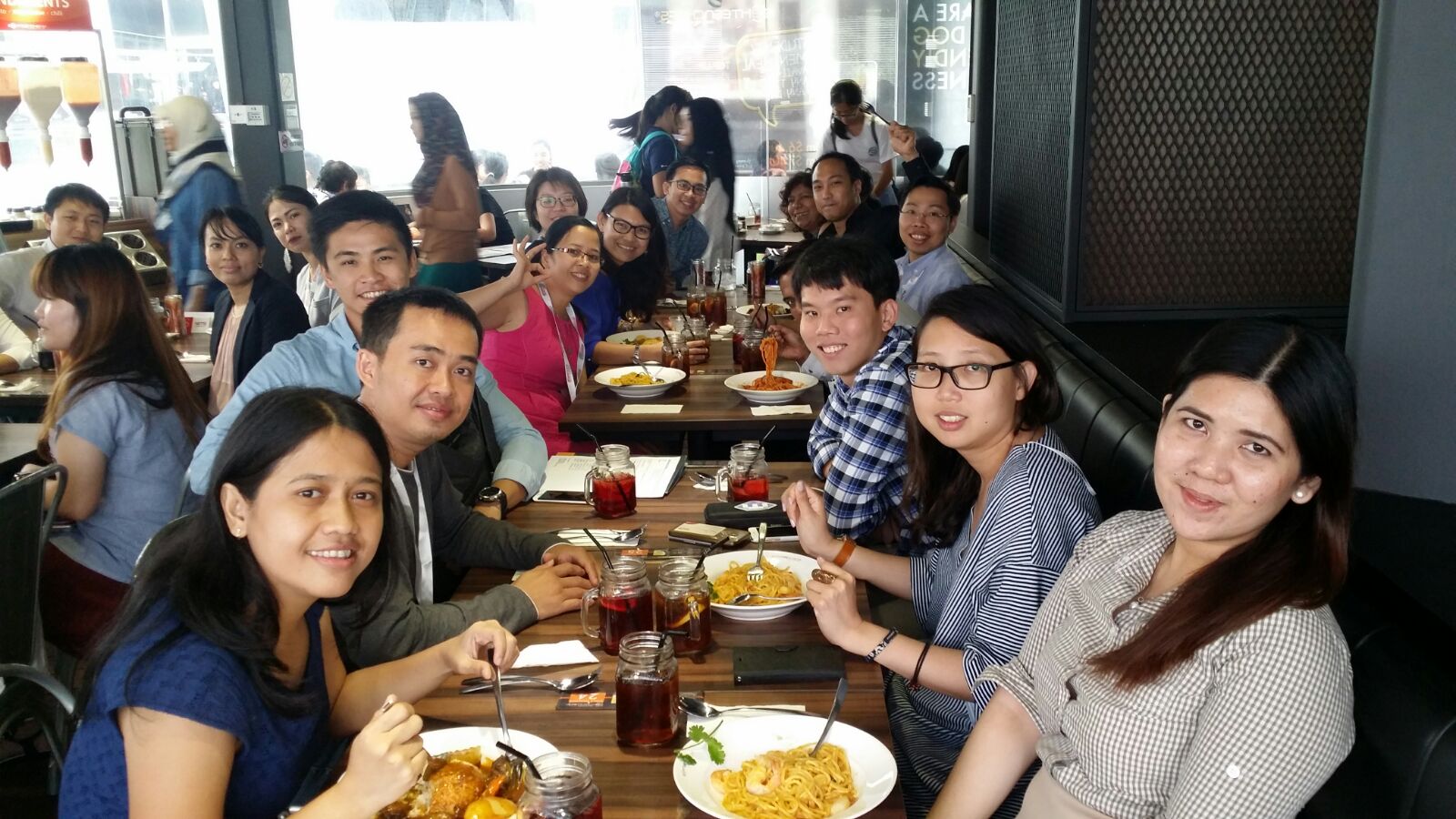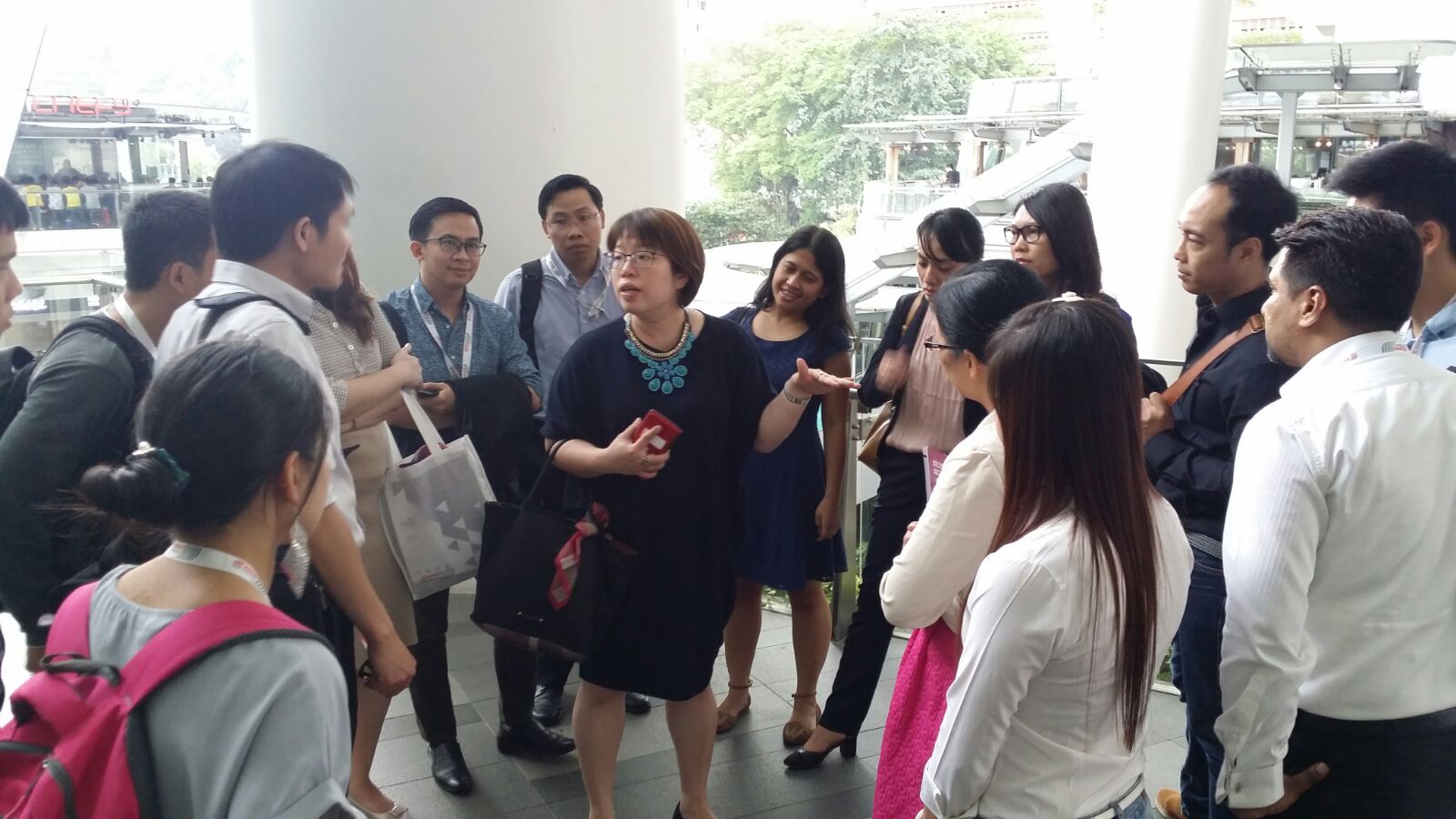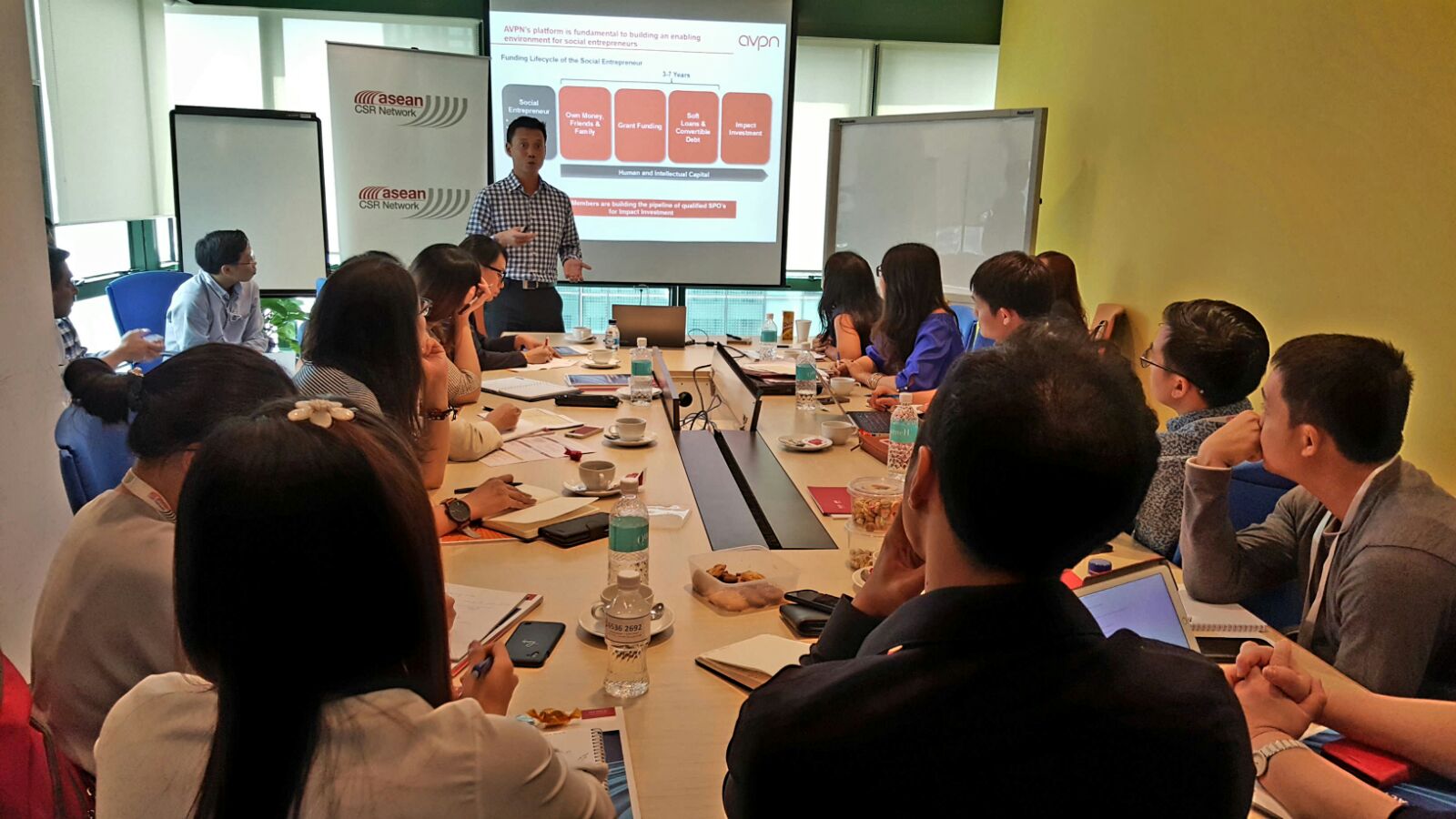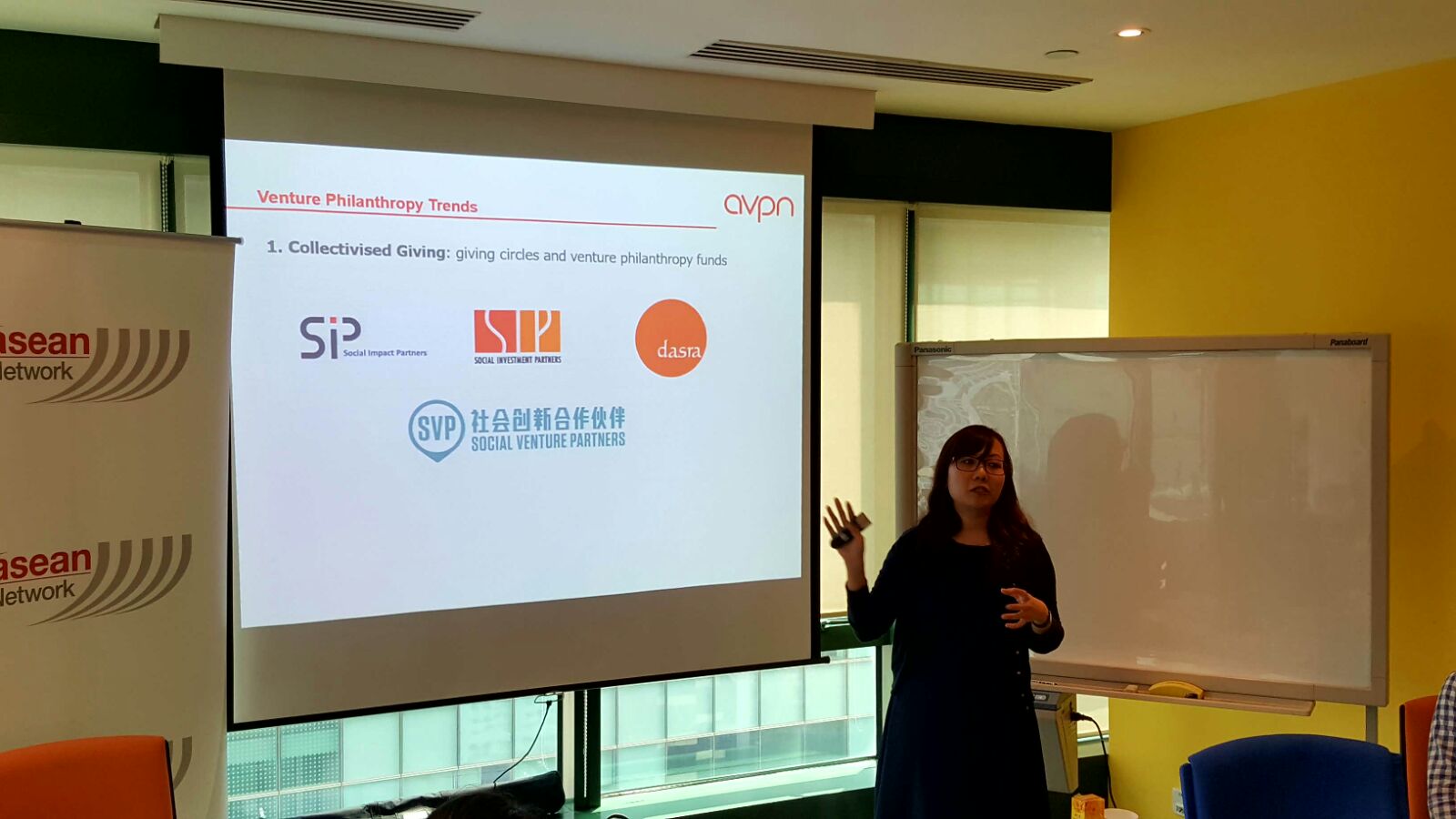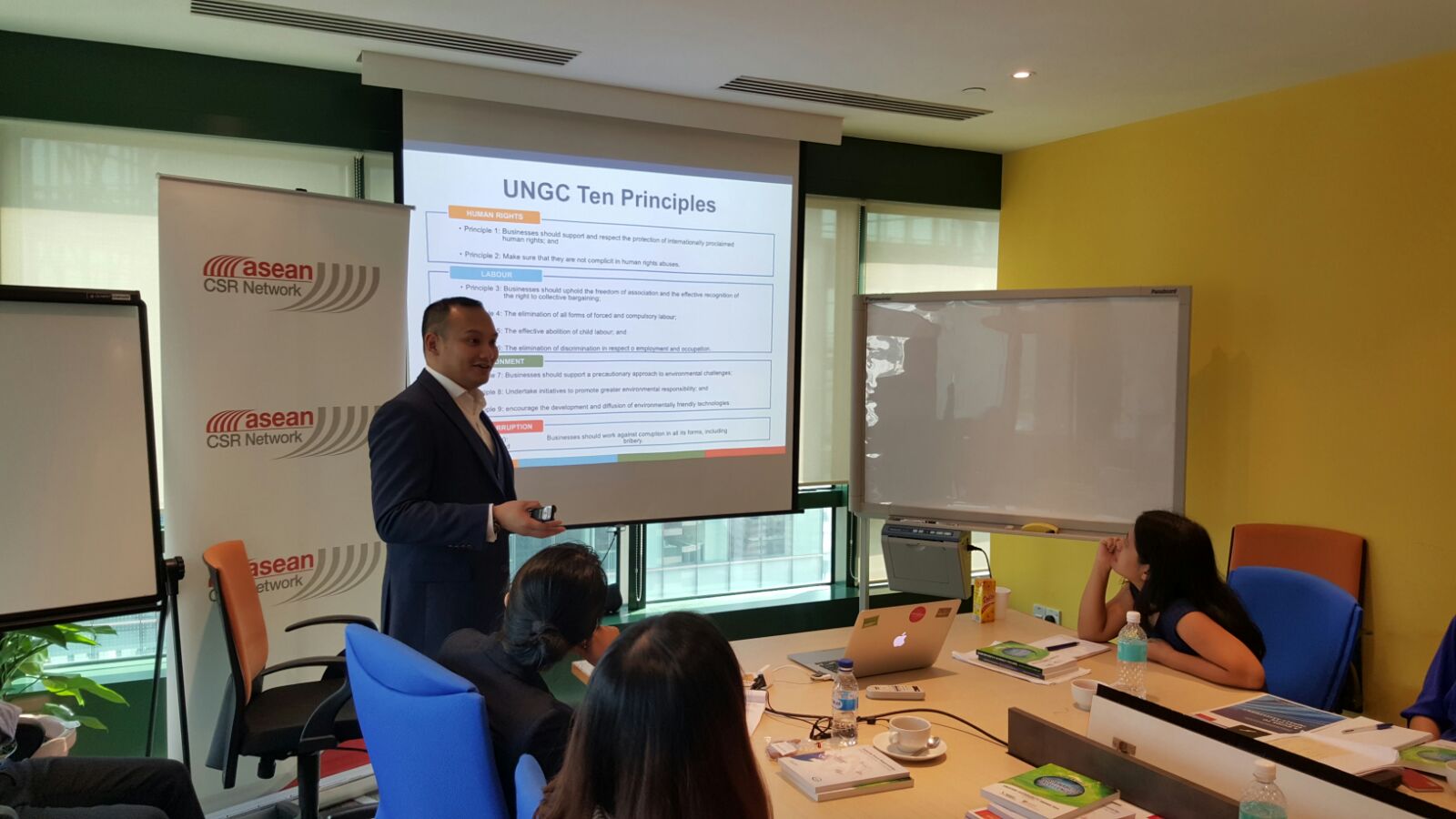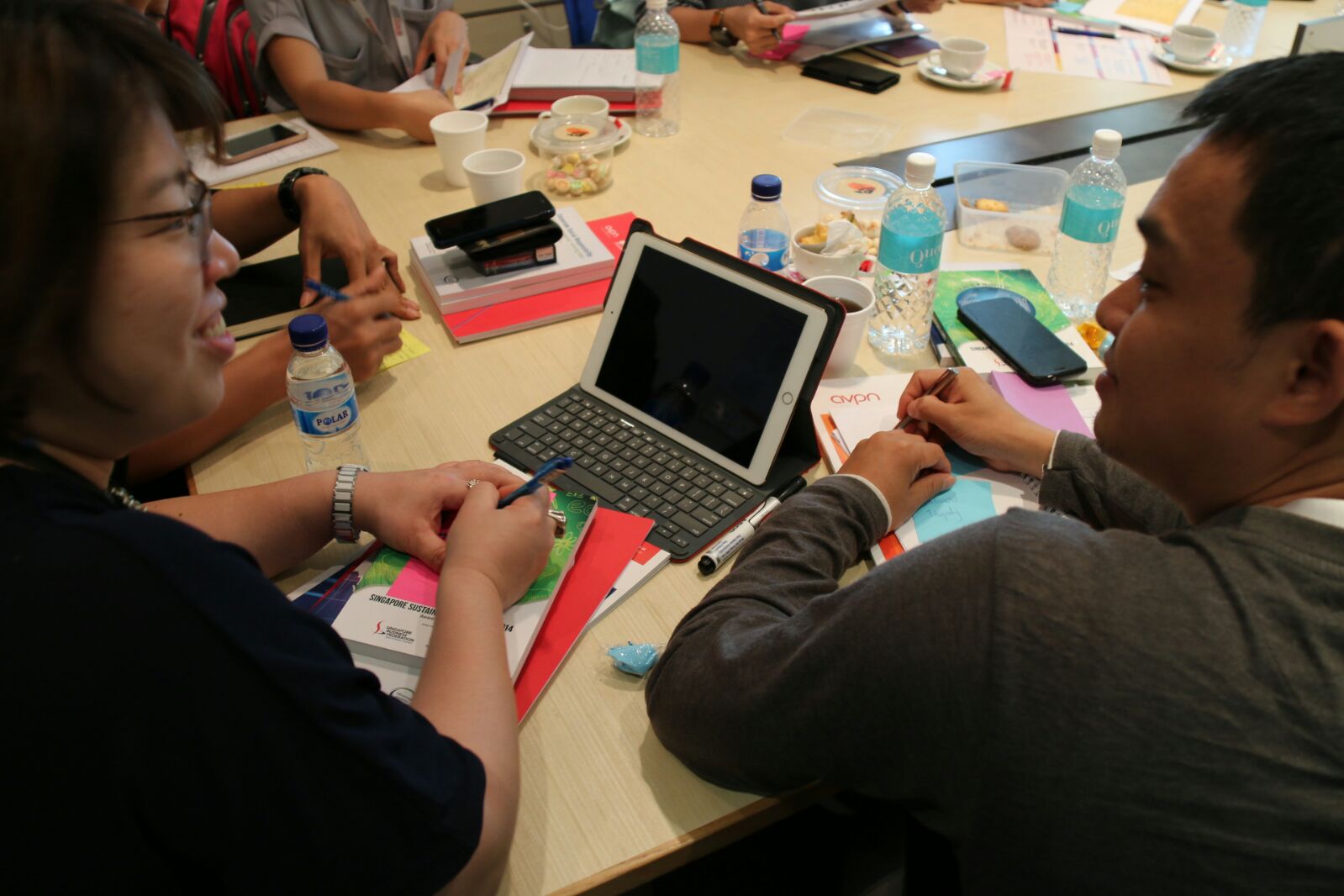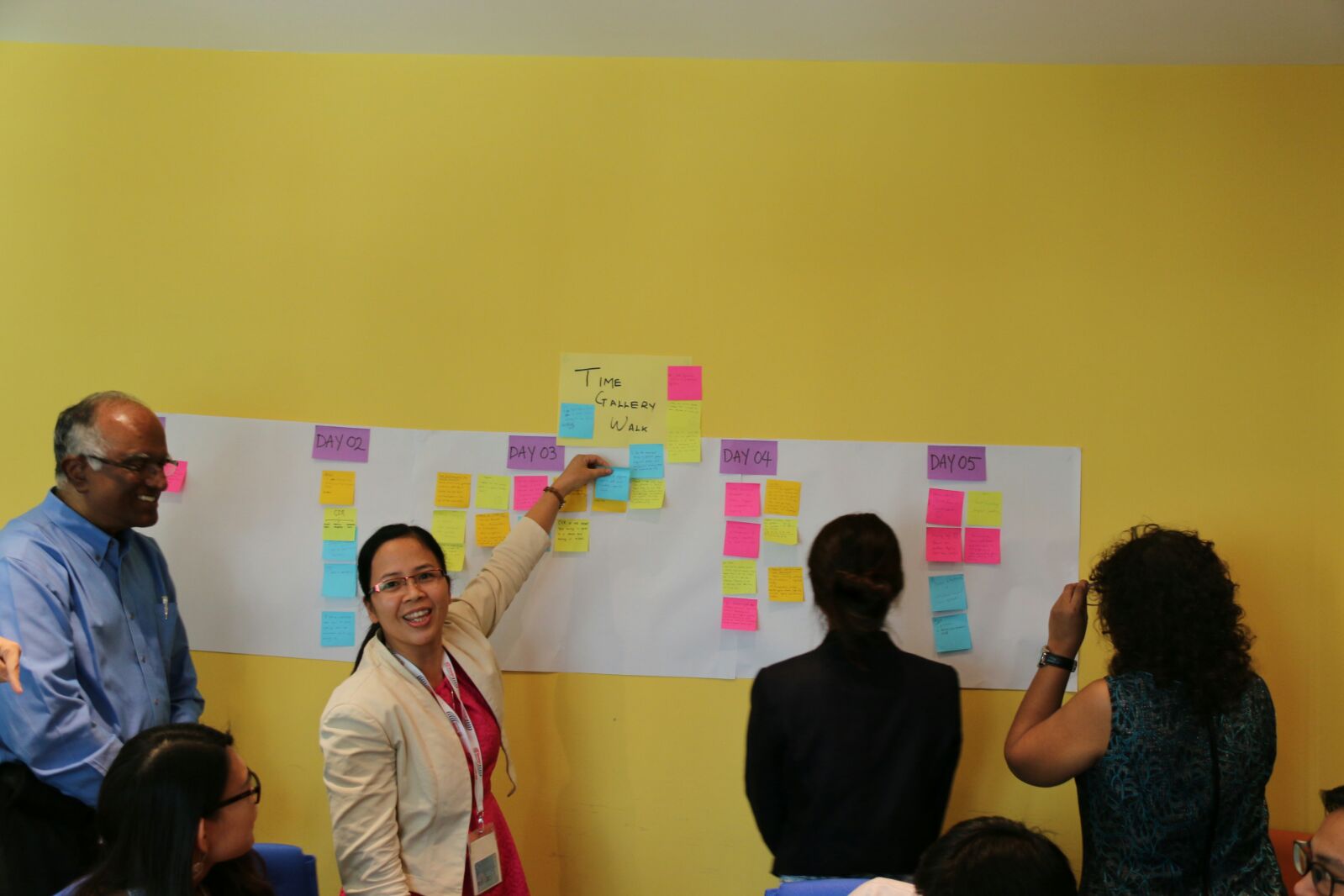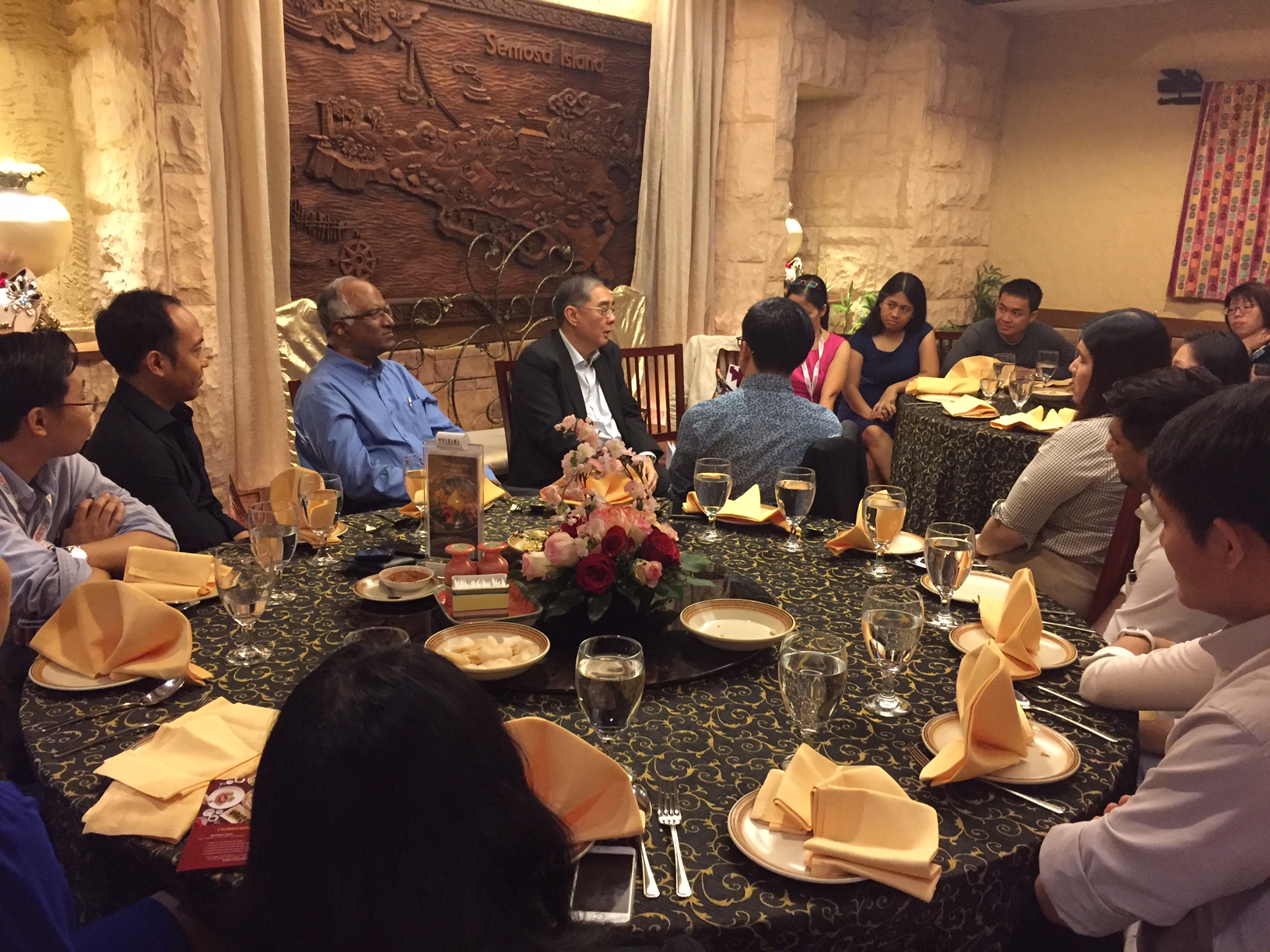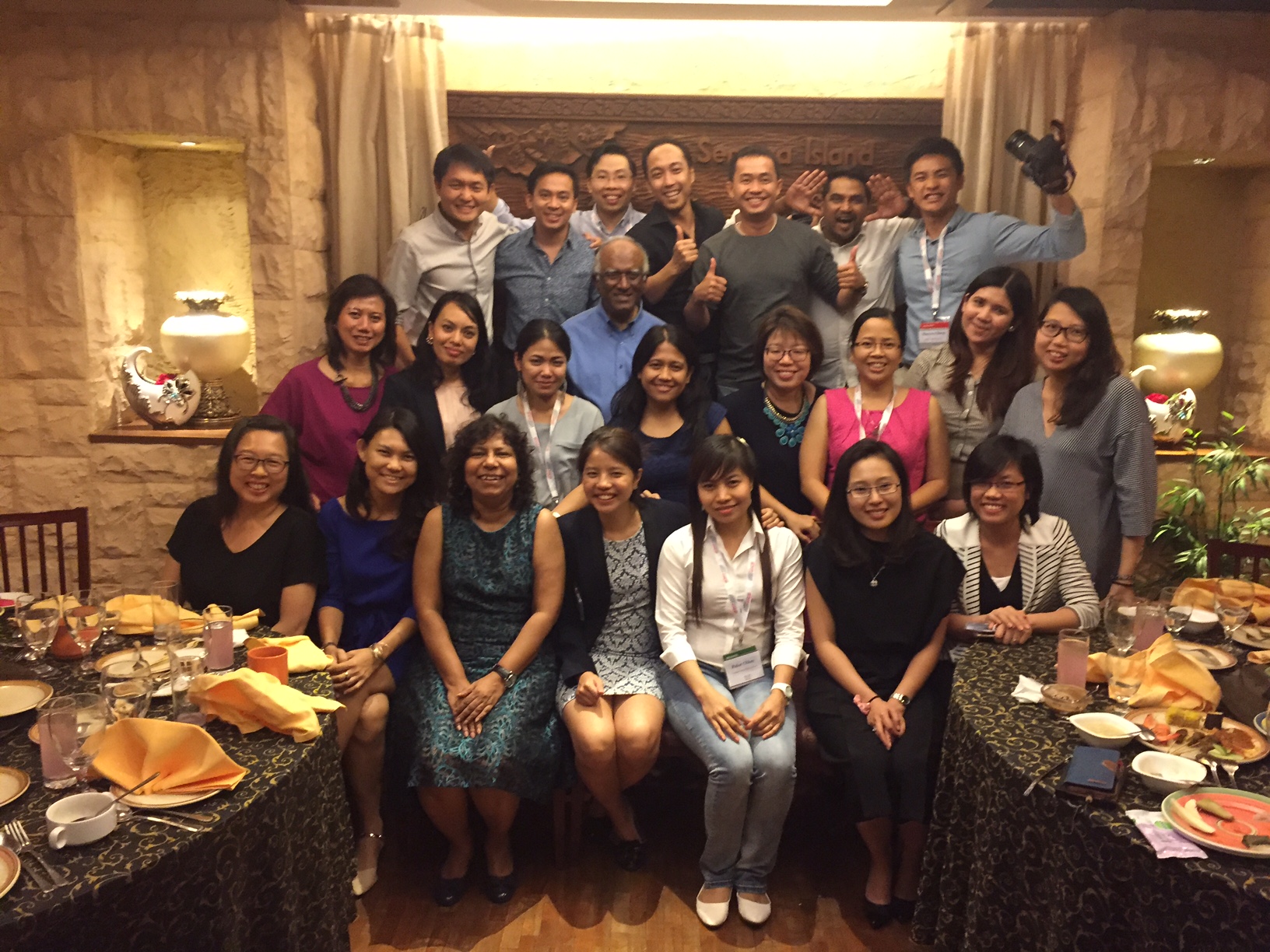Singapore - Module 1 of the ASEAN CSR Fellowship (2017)
ACN launched its inaugural ASEAN CSR Fellowship on 9 Jan 2017. 15 Fellows were selected to participate in the Fellowship, featuring a series of study tours - starting in Singapore - to meet business leaders, government officials, academics, and civil society practitioners on key topics in responsible business.
Highlights in Singapore:
- Closing dinner with Ambassador Ong Keng Yong (Former Secretary-General of ASEAN)
- Tour of the Singapore Parliament and witnessing a live sitting
- Business & Human Rights lecture at Singapore Management University (SMU)
- Business Integrity workshop at the National University Singapore (NUS) Business School
- Sharing by Hitachi on their commitment to human rights
- Panel discussion on migrant worker issues with the Manpower Ministry and civil society groups
- Learning about impact investment from the Asian Venture Philanthropy Network (AVPN)
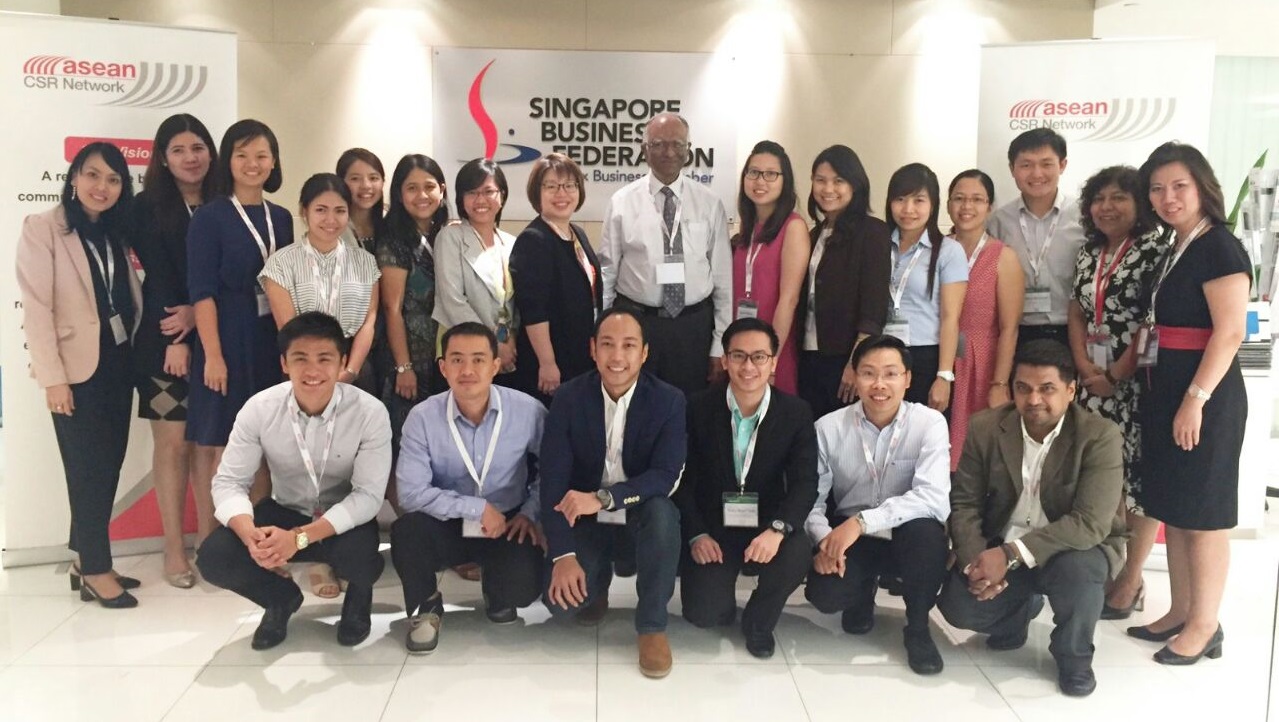
Inaugural batch of Fellows with staff of ASEAN CSR Network: (From L, top row) Philaiphone Vongpraseuth from Phousy Soles Group in Laos, Michelle Ong from Metro Bank Foundation in the Philippines, Irin Ng from Como Hotels & Resorts in Singapore, Vanida Khouangvichit from Village Focus International in Laos, Melissa Chong from ASEAN CSR Network (ACN), Dini Triyuni from WWF Indonesia, Nguyen Phuong Thao from ACN, Lydia Ang from CapitaLand in Singapore, Thomas Thomas from ACN, Ong Shiyun from the National Volunteer Philanthropy Centre in Singapore, Zin Mar Lwin from Norwegian People's Aid in Myanmar, Pidor Chhay from Transparency International Cambodia, Nguyen Thi Bich Hien from IUCN Vietnam, Sanva Saephan from KP Company in Laos, Braema Mathi from ACN, Ester Tjahjadi from ACN, Marcus Chong from ACN, Sambath Bun from G Gear Company in Cambodia, Aji Paramartha from KPMG Indonesia, Vo Ly Hoai Vinh from Coca-Cola Beverages Vietnam, Nguyen Dung Tien from the ILO-IFC Joint Programme on Better Work in Vietnam, and Selveraj A/L V Ramasamy from the Ministry of Foreign Affairs Malaysia.
Day 1 (9 Jan 2017) - Understanding Singapore
The Fellowship kicked off with an introduction of Global Compact Network Singapore (GCNS) and ASEAN CSR Network. Fellows also took time to learn about each other's work back in their home countries.
Before meeting in Singapore, Fellows completed an online CSR programme created by the University of Nottingham, in order to understand basic theoretical principles and case studies of CSR in practice. A workshop was then held where Fellows broke into small groups to share their key learning outcomes from the online module, discussing the following key question: "What are the enablers and barriers to promoting CSR in ASEAN?". Some of the common 'enablers' shared were government policies and buy-in from top management, while a common 'barrier' was the profit-at-all-cost motive of many companies.
In the afternoon, Fellows paid a visit to Singapore's Old and New Parliaments, which presented an opportunity to understand Singapore's unique strength in robust policy-making in order to foster trust from the business community. A Parliament guide introduced the Fellows to Singapore's Westminster Parliamentary system and answered queries on how the main policy-making body functions in Singapore. The visit coincided with a Parliament sitting on the day and Fellows sat in a live debate on the Securities & Futures Bill. After the tour of Parliament, Fellows attended a book launch held at the Lee Kuan Yew School of Public Policy (LKYSPP), involving a panel discussion with Mr Jonathan Tepperman, Managing Editor of Foreign Affairs, and Prof Kishore Mahbubani, Dean of LKYSPP. The book was titled "The Fix: How Nations Survive and Thrive in a World of Decline", and Fellows gained insights on the pertinent issues in global politics today and how it might affect CSR.
Day 2 (10 Jan 2017) - Business & Human Rights
On Day 2, Fellows spent the day at Singapore Management University (SMU)'s School of Law to understand how businesses ought to protect and respect human rights, starting with a classroom session with Prof Mahdev Mohan (Assistant Professor of Law & Director, Asian Business and Rule of Law Initiative, SMU). He shared common theoretical concepts such as the UN Guiding Principles on Business and Human Rights, as well as case studies from Cambodia and Singapore. This was followed by a presentation by one of ACN's corporate partners - Hitachi Asia - represented by Christian Bustamante (Sustainability Manager), who shared with the Fellows on Hitachi's commitment to Human Rights. Valuable insights were shared on Hitachi's corporate policy, the timeline of its development, and how the policy was implemented over time.
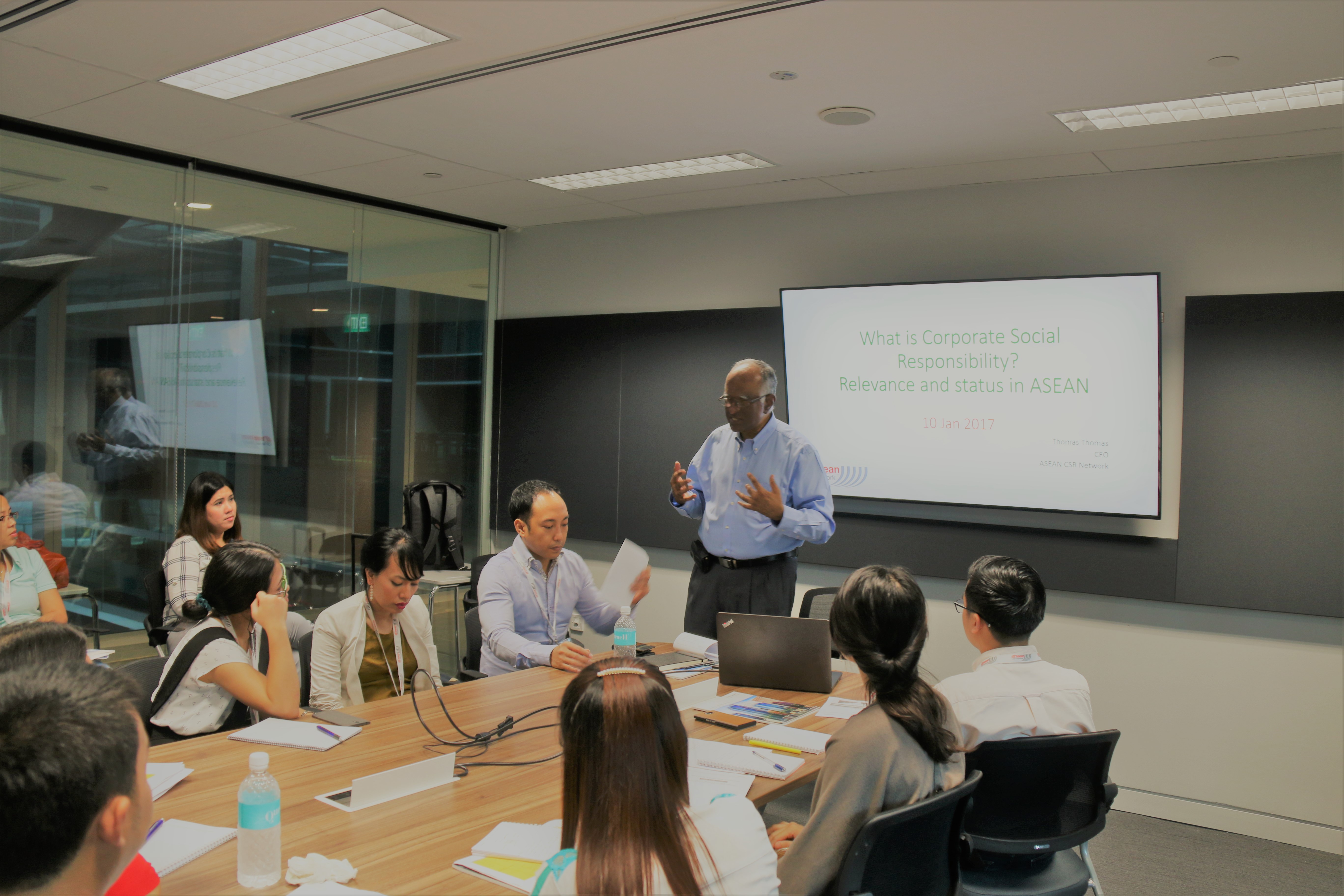
The day continued with Mr Thomas Thomas (CEO, ASEAN CSR Network) sharing an introductory presentation covering CSR and its relevance in ASEAN, including some of the key research reports conducted by ACN which identified areas of progress and gaps in ASEAN countries. A key question was also discussed: What is the business case for CSR? Why should businesses care about the triple bottom line in today's context?
This was followed by Ms Cynthia Morel (Expert Advisor of the Asian Business & Rule of Law Initiative) who shared her extensive research on land rights issues in ASEAN, particularly in the agribusiness & mining industries.
Day 3 (11 Jan 2017) - Governance in Businesses
Day 3's focus was on business integrity, corporate governance and compliance - held at the National University of Singapore (NUS) Business School. Prof Lawrence Loh (Director of Centre of Governance, Institutions and Organisations (CGIO)) started the session with an introduction to business ethics, posing the opening question: "Can Ethics be Taught?". Prof Lawrence then introduced philosophical frameworks to help Fellows solve dilemmas in decision-making, using the "Lifeboat Exercise" as an analogy. This included an introduction to the body of work from philosophers such as JS Mills, Immanuel Kant, John Rawls and Aristotle. He ended off by presenting the latest findings in a piece of research conducted together with ACN, focusing on the state of corporate disclosure by the largest 50 companies in Indonesia, Malaysia, Philippines, Singapore and Thailand.
The afternoon's learning focused on governance in practice, starting with Mr G Balasubramaniam who shared on the best practices from his years of experience as a Compliance Advisor to top companies. This was followed by Mr Michael Lee from Singapore's anti-corruptions bureau - the Corruption Practices Investigations Bureau (CPIB) - providing insights on how Singapore has maintained its integrity culture.
Day 4 (12 Jan 2017) - Migrant Workers & Labour Issues
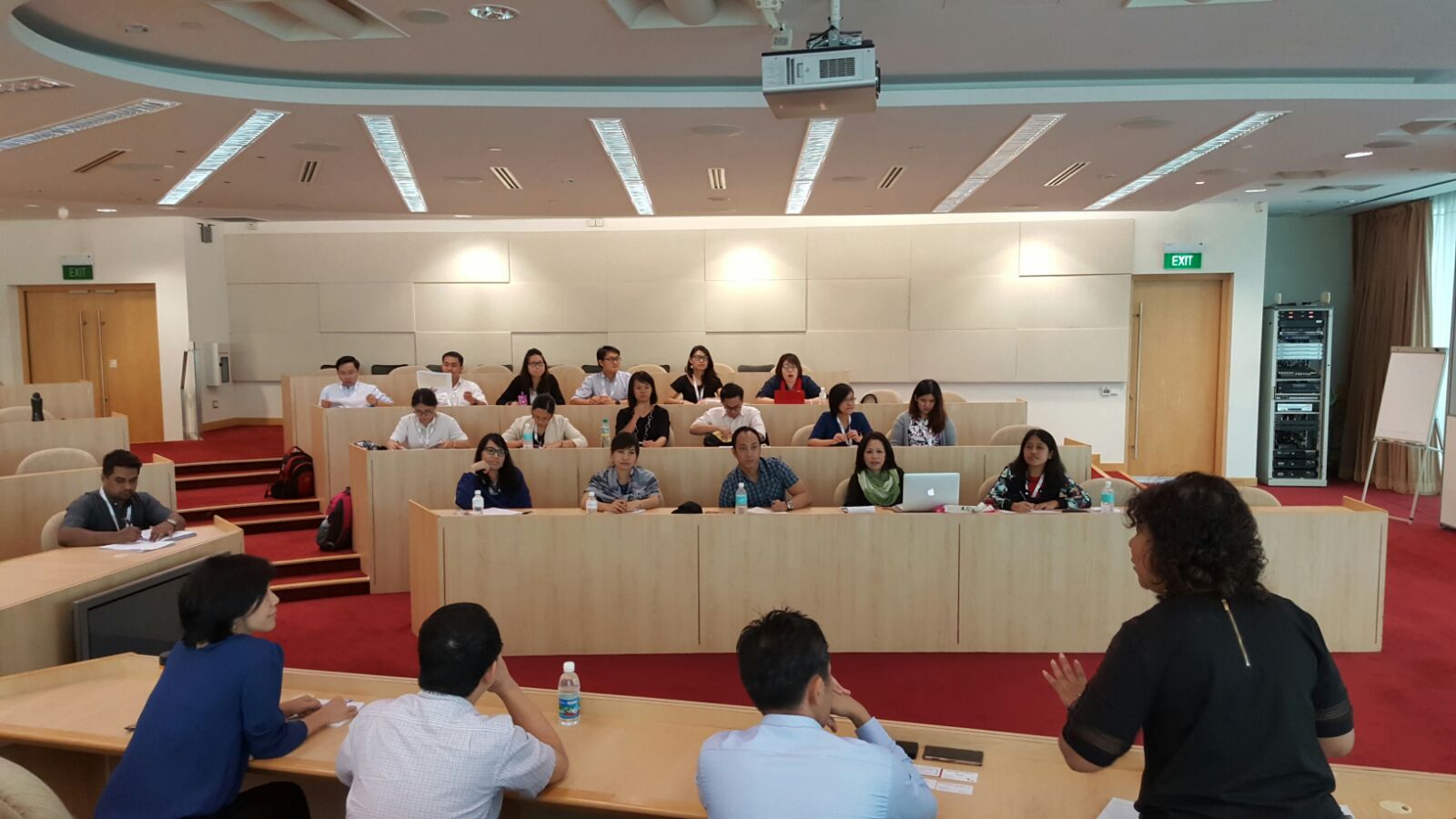
Day 4 featured a deep dive into issues surrounding migrant workers and labour. The aim was to help Fellows understand how the government and civil society groups in Singapore ensure migrant workers retain good relations with their employers, as well as the challenges faced in managing their wellbeing and enforcing their rights. The day started with a site visit to the Migrant Workers' Centre (MWC), an NGO which champions fair employment practices. Their Executive Director, Mr Bernard Menon, shared about the migrant worker landscape in Singapore, including the fact that more than a third of Singapore's workforce were migrants from Bangladesh, Malaysia, China, Myanmar and other neighbouring countries. Following the site visit, a panel discussion was held with Mr Alex Au (Vice President, Transient Workers Count Too (TWC2), Ms Stephanie Chok (Researcher, Humanitarian Organisation for Migration Economics (HOME)) and Mr Chng Yi Ken (Senior Assistant Director, Foreign Manpower Unit, Workplace Policy & Strategy Division, Ministry of Manpower (MOM)). The main issue discussed was how these different organisations and agencies support migrant workers in Singapore, and manage the different demands and pressures from all stakeholders.
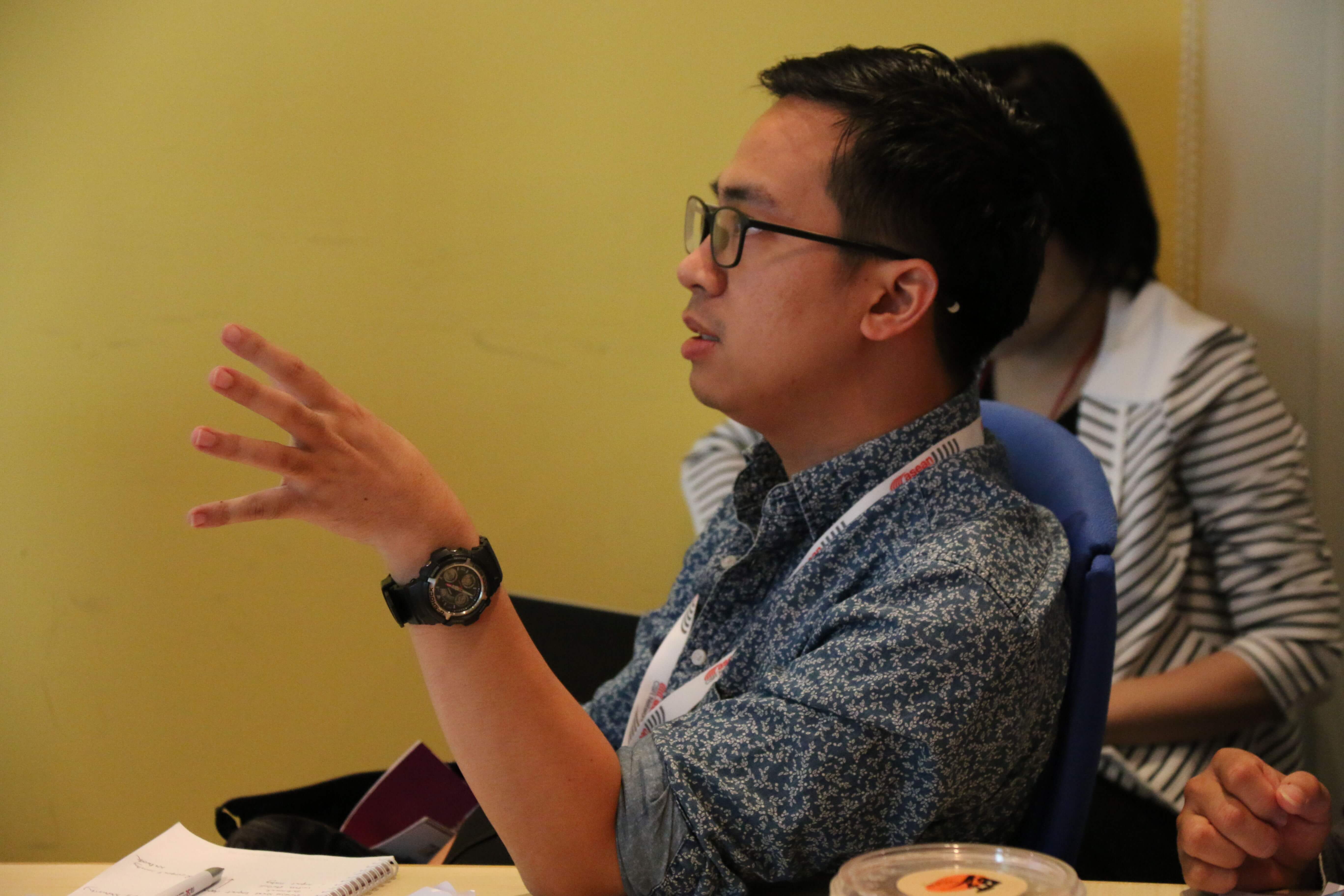
After lunch, another panel discussion took place to focus on Singapore’s labour movement and tripartite system, and how industrial relations is maintained through the various agencies. Panellists were representatives from Singapore's main agencies directed to manage labour relations in Singapore – Mr Frederick Ho (Deputy Director, International Affairs, National Trades Union Congress (NTUC)), Mr Tay Wee Yee, (Senior Manager, Singapore National Employers Federation (SNEF)) and Mr Lau Weng Hong (Deputy Director, Industrial Relations, MOM)). Discussions surrounded how government, trade unions and the private sector work hand in hand to maintain healthy labour relations and economic stability.
Day 5 (13 Jan 2017) - Social Enterprises & Impact Investment
The final day of the Fellowship focused on Singapore's social enterprise and impact investment space, and Fellows made a site visit to the Singapore Centre for Social Enterprises (raiSE). Ms Lyn Chen from Research & Strategy at raiSE shared how companies could be involved in the social good movement through social innovation - for example, by investing in new products and processes with a potential to create social impact. This was followed by a presentation by Ms Mythili Mamidanna from DBS Foundation who shared about the bank foundation's mandate to support social enterprises in Singapore through grants, consultancy services and dedicated programmes.
The visit to raiSE was folllowed by lunch at Eighteen Chefs - a restaurant chain founded by an ex-convict, which now hires a large team of ex-convicts to operate its 12 outlets nationwide. The social enterprise hopes to find alternative ways to help youths and ex-convicts reintegrate back into society, while providing them a platform for them to realise their talents in the F&B industry. One of the Fellows, Ms Lydia Ang, also gave an impromptu tour of the mall as the Sustainability Manager of CapitaLand.
After lunch, Fellows heard from Asian Venture Philanthropy Network (AVPN), one of the first and leading players in Singapore's social investment space. Mr Kelvin Teo, Managing Director of the AVPN Knowledge Centre, shared on the progress, challenges and opportunities for social investment in ASEAN. He explained that social investing was a relatively new but exciting industry, involving the financing of social enterprises, encompassing types of investment such as venture philanthropy and impact investment.
This was followed by a presentation from Mr Wilson Ang (Executive Director, Global Compact Network Singapore (GCNS)), who wrapped up the final session by providing an overview of the CSR landscape in Singapore, including the trends, opportunities and challenges faced by companies in adopting CSR.
The day ended with a debrief and sharing by the Fellows on the key learning points gathered during the Fellowship. To close the 5-day learning journey, a dinner was hosted at Furama Riverfront Hotel with Ambassador Ong Keng Yong, former ASEAN Secretary-General, who shared his insights on how the responsible business agenda can be promoted in the region.
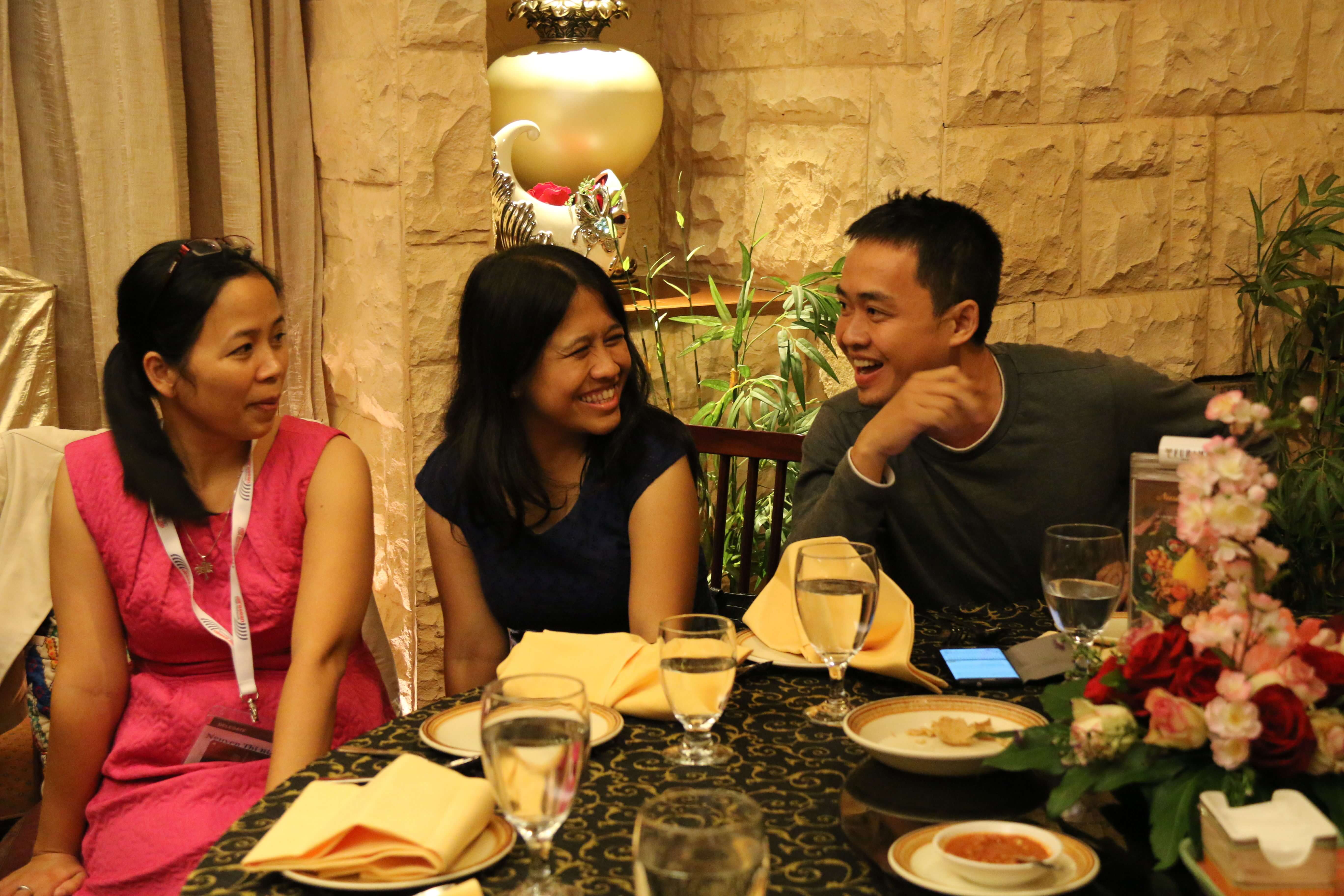
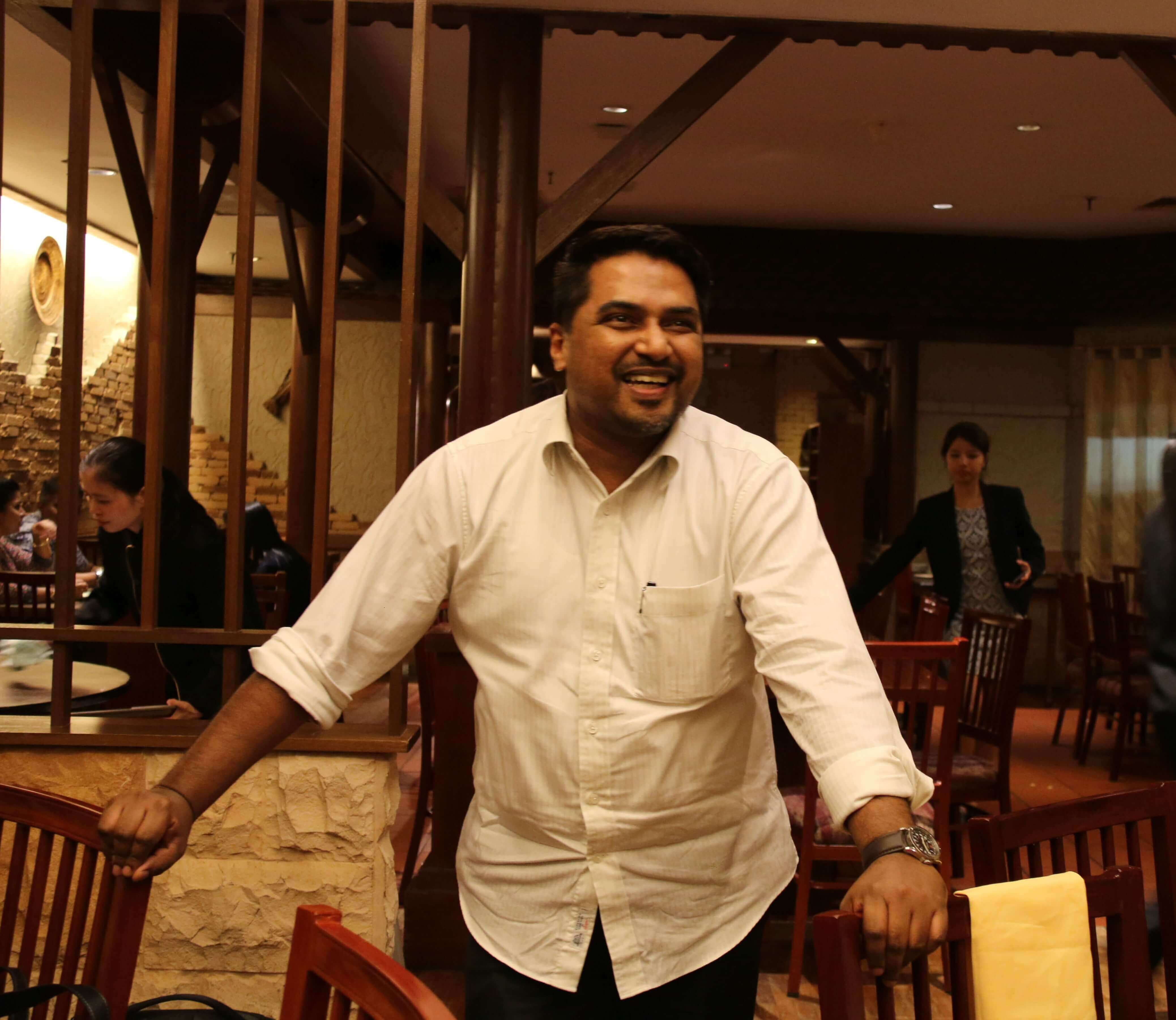
Dinner and conversations with Ambassador Ong Keng Yong, former ASEAN Secretary-General, on where ASEAN is heading with regards to responsible business practices

